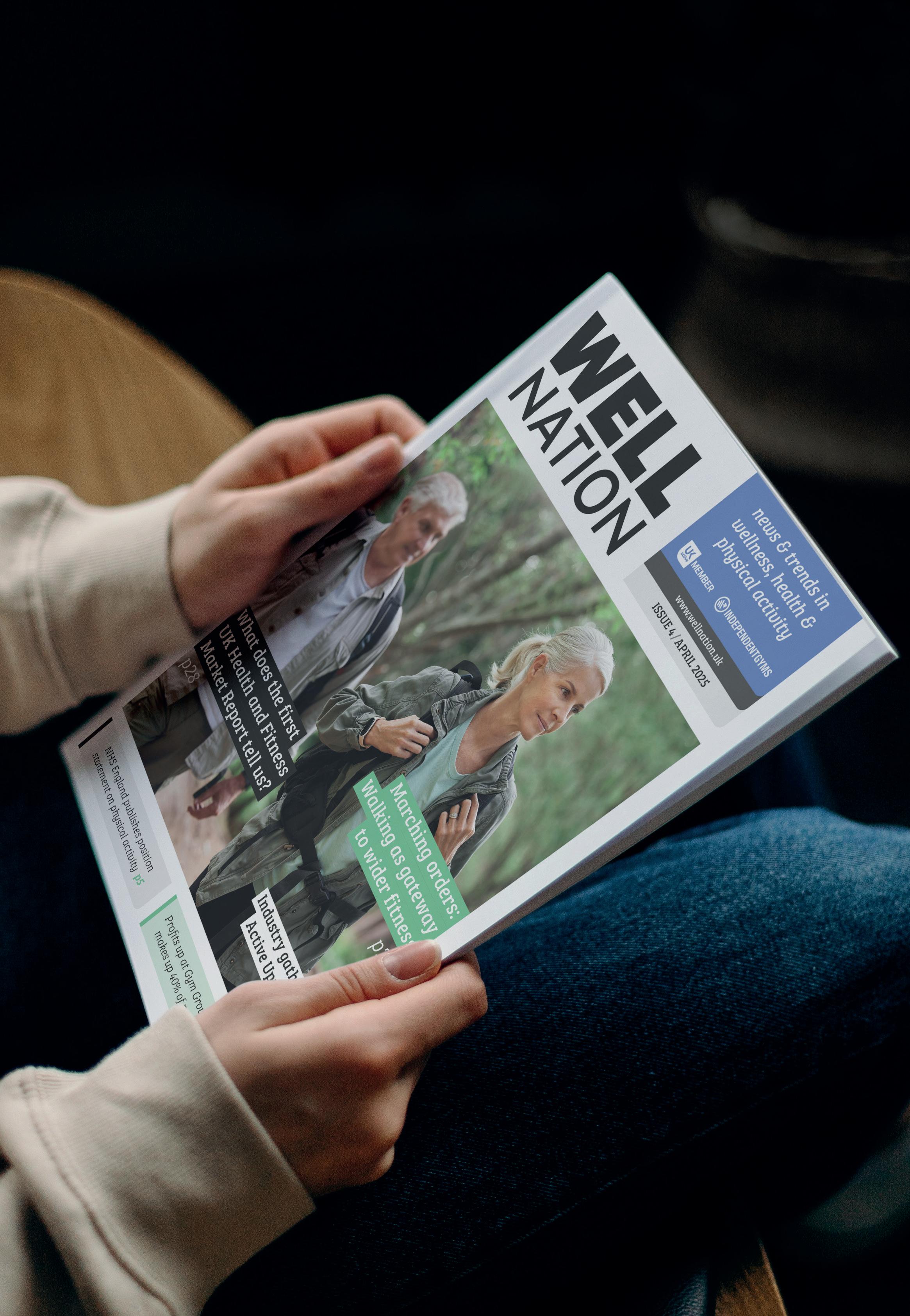
























In an industry where cost is often the focus, Active IQ stands apart by delivering more - more quality, more support, more value.
We know that price matters, but when it comes to qualifications, reliability, and long-term success, quality is non-negotiable. That’s why we offer:
Industry-leading qualifications – Designed with employers to meet workforce demands
Comprehensive support – A dedicated team invested in your success
Added value – Free CPD, FitPro membership with eLearning purchases, and extra resources at no cost
A trusted partner – Transparent pricing, no hidden fees, and a gold-standard reputation. Why settle for less? Begin with better. Choose Active IQ.
WHERE YOU GET MORE.... MORE QUALITY, MORE SUPPORT, MORE VALUE.





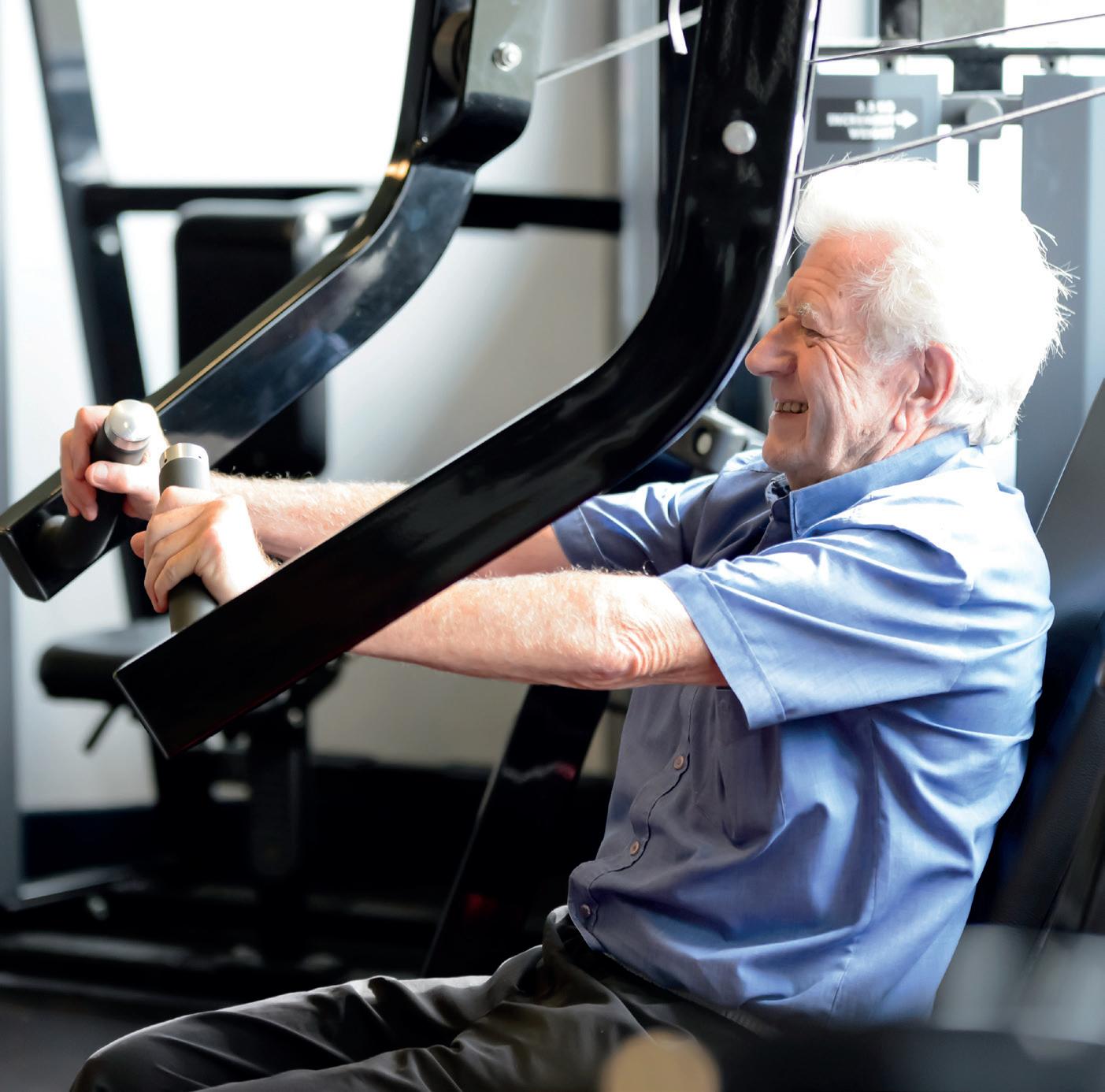
The statement highlights how unlocking the potential of physical activity will require healthcare leaders to be “much more ambitious”
NHS England has published a new position statement on physical activity.
In the document, called Harnessing the benefits of physical activity, NHS England outlines how physical activity is “essential to health and wellbeing”, while accepting that many people “do not receive the support they need to stay active”.
“There is overwhelming evidence that the benefits of physical activity far outweigh any risks, for both adults and children and even for those with health conditions,” the statement says.
“Embedding physical activity into every aspect of life-long healthcare will benefit patients, NHS staff and the wider population.”
The statement also highlights how unlocking the potential of physical activity will require healthcare leaders to be “much more ambitious”,
incorporating promotion of physical activity into wider plans on prevention and long-term conditions management. It identifies four ways in which the NHS will aim to achieve this.
These include empowering health and care professionals and to equip them with the skills and confidence to discuss the importance of taking up appropriate physical activity with patients who have health conditions.
The others are to integrate physical activity into clinical pathways, support the NHS workforce by holistically promoting physical activity and to increase collaboration between the NHS and the physical activity sector.
Sport England’s outgoing CEO, Tim Hollingsworth, said the publication of the NHS England Position Statement was a “very welcome and important moment.”

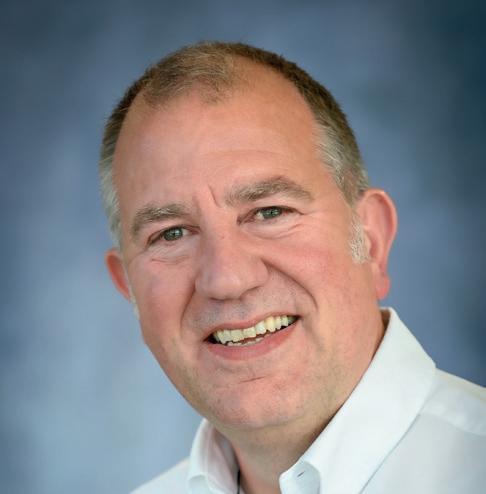

is protected by copyright and no part may be reproduced, transmitted or stored in any print or electronic format without the written permission of the publisher. Every effort has been made to ensure the accuracy of the contents of this publication and WellNation accepts no responsibility for any error or misrepresentation. Opinions expressed by the contributors and advertisers are not necessarily those of the publisher and we do not accept responsibility of losses or damages arising from them. Printed by BCP Media Group Ltd.
The Gym Group has returned strong full-year financial results for 2024, reporting an 11% increase in revenue and a 24% increase in group-adjusted EBITDA (less normalised rent).
Like-for-like revenue grew 7% during the year ending 31 December 2024, while the low-cost gym operator also saw the average number of members per club increase by 4%. Pre-tax profits for the year were £3.6m, up from a pre-tax loss of £5.5m in 2023. One of the key drivers for growth is the changing membership profile.
Will Orr, Gym Group CEO, said that Gen Z – the generation of people born between 1997 and 2012 – now make up 40% of its membership.
“Gyms are part of Gen Z’s identity and one of the places they go to socialise,” Orr said. “They go to the gym because they want to – not because they feel they have to. They don’t see it as a chore.”
This, Orr said, has been reflected in high levels of member engagement and satisfaction during 2024. According

Gen Z now makes up 40% of The Gym Group’s membership
to company data, 93% of members rated The Gym Group four or five out of five for overall satisfaction. More than half (57%) rated it five.
This led to a financial “win” too, as The Gym Group saw average revenue per member per month (‘ARPMM’) increase by 7%. Meanwhile, the
proportion of members visiting a gym four or more times a month also increased by 1.2% (120bps). During 2024, the group opened 12 new sites, at the top end of its initial guidance. Orr revealed that the group plans to open between 14 and 16 new sites in 2025.
Wiltshire Council has appointed Pellikaan Construction as its construction partner for the Trowbridge Leisure Centre project, which is being delivered by the Council’s development partner Alliance Leisure. Pellikaan Construction previously delivered the Melksham Community Campus for the council, which opened in 2022.
The new Trowbridge Leisure Centre will include a six-lane, 25m swimming pool; a 7m x 13m learner pool; a gym with 120 exercise stations and two fitness studios; an immersive indoor cycling studio, community meeting room and café. There will also be an adventure play area targeting young people with TAGactive activities and a ‘Live Well’ suite for older adults to exercise. The centre’s modern, industrial design will reflect Trowbridge’s heritage, while accessibility will be central to plans. The centre has been designed



The centre was forced to close in July 2021
A council will “explore its options” to build a new sports hall and other facilities on the site of Deepings Leisure Centre in Deeping St James, Lincolnshire. The centre was forced to close in July 2021 due to a faulty roof. Since then, a Deepings Community Leisure Centre Community Interest Company (CIC) was formed, which attempted to try to raise the funds needed to refurbish it.
The group, however, had to accept defeat as it couldn’t raise the required sum, estimated to be around £4m.
Deepings Leisure Centre is owned by Lincolnshire County Council.
Councillor Martin Hill said the council would now seek the best way forward – but added that the likely outcome would now be to demolish the centre and build a new one.
“Last year, the Deepings Leisure Centre CIC and Anthem Trust made it clear to the county council that the cheapest way to bring the site back into use was for us to demolish the current
building and allow them to explore options to build a new centre,” he said.
“After many years of fruitless conversations since the leisure centre was closed in 2021, Lincolnshire County Council is keen to break the deadlock on this situation and start the ball rolling on plans to bring community leisure facilities back to the Deepings.
“After another disappointing meeting of all the partners involved in the project this week, it is clear that these conversations are no further on around the future use of the site as a new leisure facility that both the community and the school can benefit from. The county council has been very patient throughout this process and provided a number of extensions in the hopes that the parties involved would come to an arrangement.
“However, as the owners of the building, we cannot allow it to deteriorate indefinitely without action; it would be unsafe and does a disservice to the residents of the Deepings.”

New App
‘Fiscal Fitness’ for Gyms with Weekly Expert Seminars
A new online-based resource aims to provide health clubs, fitness studios and gyms with tools to improve their “fiscal fitness”.
The new VirtualRoadShow. APP – available from all the main app stores – will showcase seminars presented by fitness industry experts, with a new one added every Thursday.
Speakers Bureau (combined Actual Xperience of over 1,000 years) every Thursday at 12 noon GMT, began on the 13th of March 2025.
The app was launched in March during The HFA Show 2025 (IHRSA) in Las Vegas.
Taylor Made Designs recycles 1.5 tonnes of garments in March
Branded clothing and merchandise specialist, Taylor Made Designs, recycled more than a tonne of end-of-use garments on behalf of its clients during March.
As part of its efforts to become more sustainable, the company offers customers a garment recycling service.
A large number of these clients operate in the fitness, leisure and wellness sectors.
“End-of-use, damaged and out-of-date uniform doesn’t need to go to landfill,” the company says. “It can be sent to us, and we will manage its sustainable & responsible disposal.”

Data, research, and insight specialist Leisure DB has appointed Glen Thurgood as Chief Strategy Officer to help it accelerate its digital transformation and broaden its market reach.
An accomplished entrepreneur, Thurgood is the founder and CEO of Training Shed, a multi-site gym operator with four locations. He is also co-founder of two fitness tech ventures – MiOP, a surgical
Middle East-based fitness brand, GymNation, has appointed Rory McEntee, the former Brand and Marketing Director of Gymbox in London, as its new Chief Marketing Officer (CMO).
With a wealth of experience in the fitness industry, McEntee has been brought in to elevate GymNation’s growth and further solidify its position as one of the leading fitness operators in the region.
While at Gymbox, McEntee played a pivotal role in shaping the brand’s identity, driving its marketing strategies, and overseeing campaigns that resonated with gym-goers across various markets. Known for creating the most talked about campaigns and stunts in the UK, McEntee helped elevate Gymbox’s profile in the competitive fitness sector.
At GymNation, McEntee will lead the brand’s marketing initiatives and strategic communications, focusing on creative, disruptive and brand-led work to support GymNation’s expansion across the Gulf Cooperation Council (GCC) region – Bahrain, Kuwait, Oman,

Qatar, Saudi Arabia and the United Arab Emirates. McEntee will work closely with the GymNation leadership team to implement brand and marketing strategies aimed at attracting and retaining a broader fitness community. His appointment will also see Ant Martland, Founder and CCO, transition to a broader commercial role, focused on driving GymNation’s continued growth across the region.
“We are thrilled to welcome Rory to the GymNation team,” said Loren Holland, Founder & CEO of GymNation.
care pathway app and Huumans, a wellbeing tech platform.
Beyond his work in business and technology, Thurgood is a prolific author, having written nine fitness books that have collectively sold over two million copies worldwide. His career also includes a decade as a performance director in professional sports, where he worked alongside some of the world’s best coaches to drive elite athletic performance.

Leisure facility operator, Mytime Active, has appointed Steven May as its new CEO. May, who started his career 27 years ago as a lifeguard at Mytime Active, will be tasked with delivering the organisation’s strategic vision, strengthening community engagement and ensuring the organisation continues to help people ‘get more out of life’. In his new role, he will work closely with Mytime Active’s senior leadership team and advance its mission as a social enterprise.
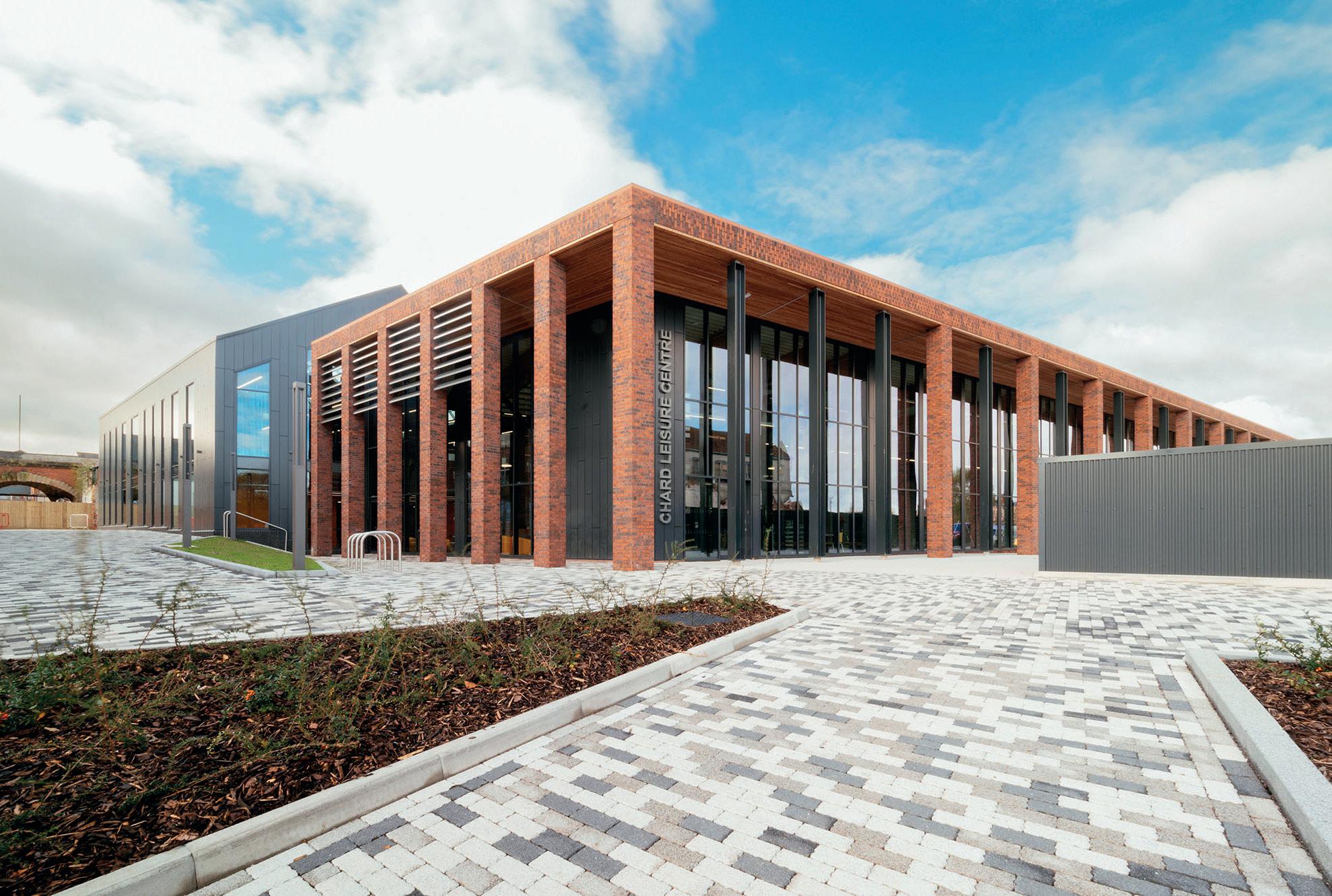


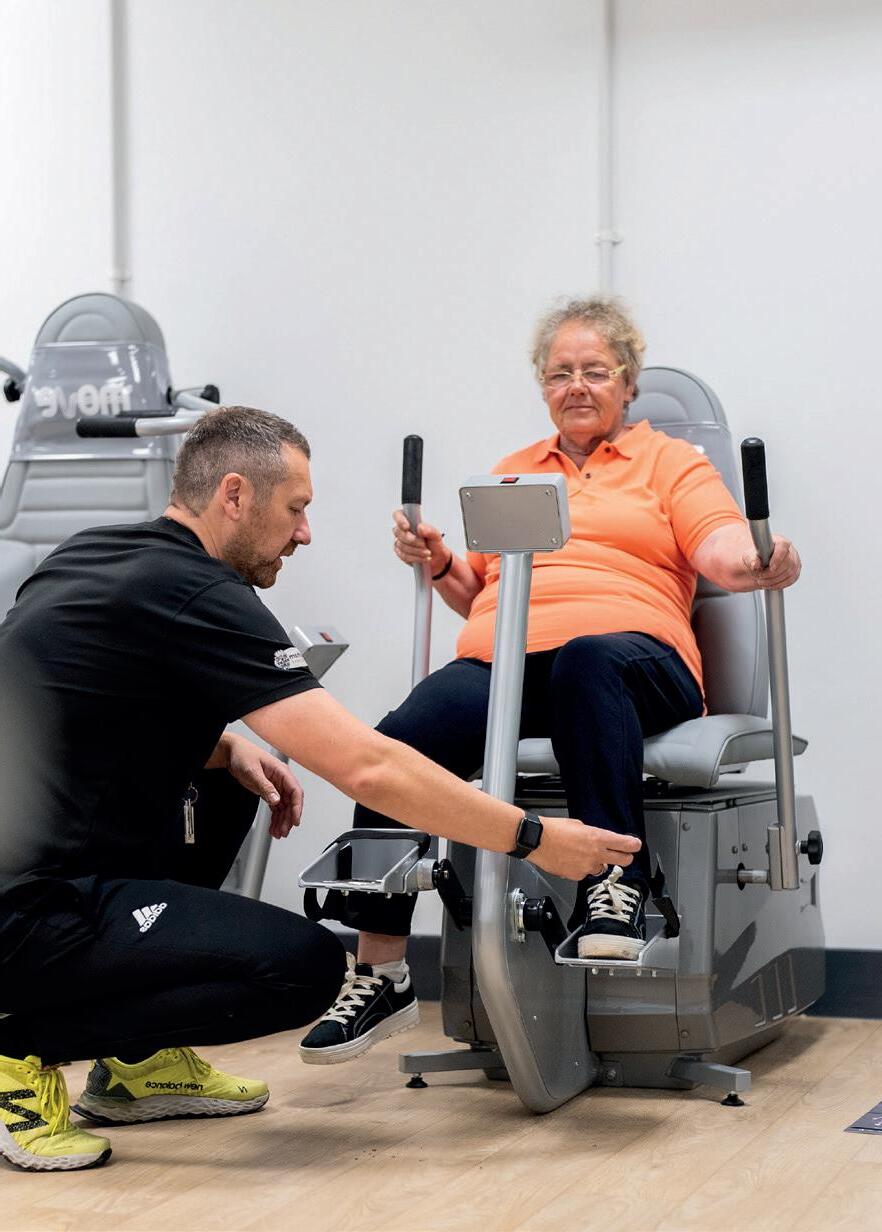

Leisure facility operator, Horizon Leisure, has launched a customer ‘buddy group’ designed to connect individuals with similar fitness goals and support its members working out at its wellbeing centres across the South East.
The Horizon Buddies programme has been launched by the charitable trust via a Facebook group and, in just a few days, almost 200 people have joined the group, with many introducing themselves and finding new fitness partners.
Horizon Buddies was the brainchild of Horizon Leisure member, Ree, 29, who felt less confident working out in the weights area of the gym without her personal trainer and was looking for a workout partner.
Alexandra Pinhorn, Marketing Manager, Horizon Leisure, said: “The Facebook group, which is managed by my team, encourages members at our centres in Havant, Waterlooville and Guilford to introduce themselves, share their fitness goals, and connect with like-minded gym

Within a few days, almost 200 people had joined the group
buddies. It’s a supportive, nonjudgemental community where members are asked to respect boundaries, be kind and be reliable.
“It’s been amazing to see the community grow so quickly, and we’re excited to see even more connections form. Although this isn’t exclusively
a women’s group, it’s striking that 90% of our buddies are women. It clearly demonstrates that leisure operators must do more to make women feel more comfortable about working out in the gym because everyone deserves the right to exercise safely and with confidence.”
A new onboarding experience for exercisers aims to offer fitness operators new tools to enhance member engagement, inspire staff and increase retention through guided small-group training.
Powered by Pocket Rocket Group and developed over the past 18 months, the new TIME resource has been tailored specifically for beginners and those returning to exercise after a long break.
“TIME seamlessly integrates onboarding, personal training and other fitness services within a gym or health club,” said Nick Mennell, Pocket Rocket’s Head of Operations.
“By considering the individual’s circumstances and personal goals, TIME provides the necessary support and structure to help every exerciser succeed—on their terms. TIME is designed with inclusivity, community and wellbeing in mind.”
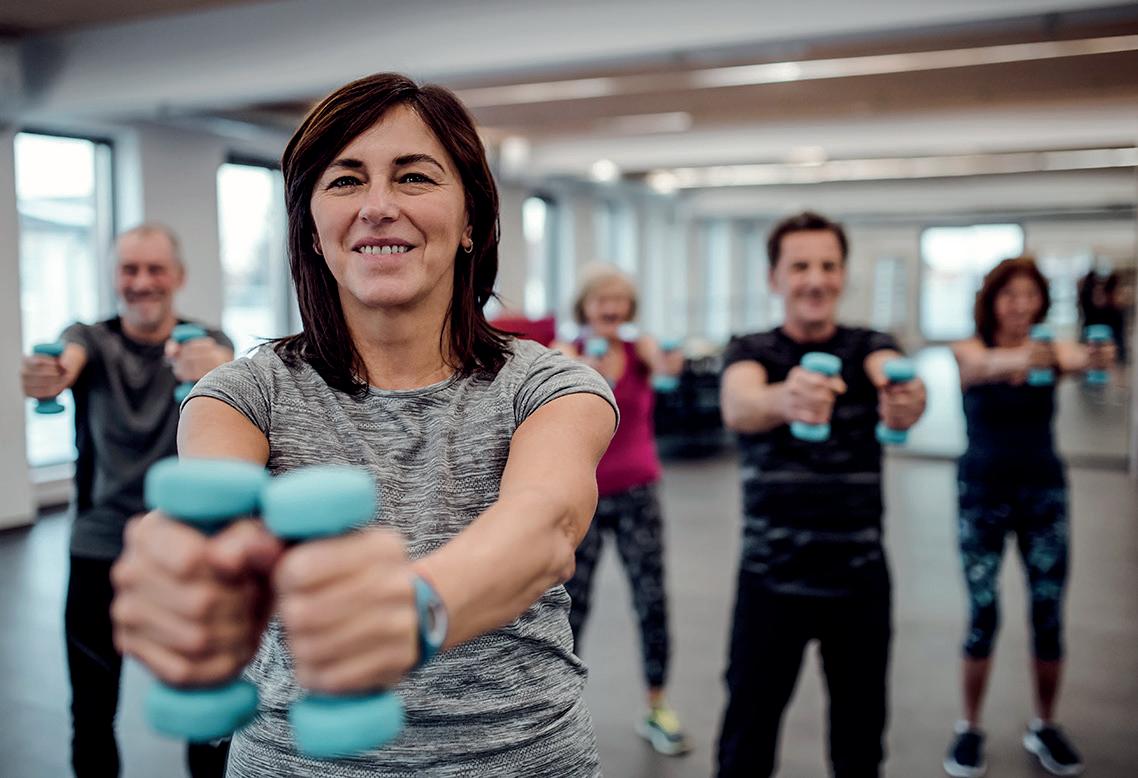

According to Leisure DB data, gym membership is higher than ever, with one in four now saying that health and wellbeing is their number one concern. With 80% of gym members visiting the gym at least twice a week, this poses a huge opportunity to engage each customer with additional sales opportunities
When at the gym, 71% claim to buy food and drink, and energy drinks are a key choice when there. In fact, energy drinks are the #2 most bought product at gyms, behind water. Find out more about why functional products are key to increased sales revenue for gyms.
Functional sells
Increasingly, consumers are looking for products with added benefits to help them maintain a healthy, active lifestyle. So, it’s no surprise that ‘functional products’ are a fast-growing category, now worth £4bn, with sales up 23% in the last 12 months.
Despite the emergence of other functional beverages and supplements, sports and energy drinks continue to drive 63% of functional growth, so it is the most important category to get right.

Delivering both a physical and mental boost, energy drinks provide essential fuel for many throughout their workout journey.
However, with most energy drink sales taking place before gym-goers step foot in their local workout venue, either as part of the weekly shop or on their way, this presents a huge opportunity to generate sales and drive incremental revenue during their visit.
Giving members a boost
Granted, this isn’t news, and many gyms already provide a range of energy products on-site. However, current gym ranges are not meeting consumer demand, and many venues devote too much space to less profitable brands. As the number 1

Functional products are a fast-growing category, now worth £4bn, with sales up +23% in the last 12 months
energy drink, Red Bull holds double the market share of the combined brands stocked in this space, so dedicating more of the chiller to recognisable brands, will help drive additional sales. Red Bull is the first brand consumers think of when it comes to energy, as well as being the most relevant and often used caffeinated brand for sports and fitness, so people expect to be able to find it.
The perfect serve
Getting the caffeine level right for exercise, is key, with 88% of gym-goers stating that caffeine content is important to them and the majority (58%) wanting under 100mg for fitness. with
many ‘fitness’ Energy Drinks containing almost double this amount, brands that offer under 100mg are more appealing to gym-goers.
For more information about Red Bull and driving Energy sales in your venue, please contact gympartners.smb@redbull.com
Southampton City Council has transferred its leisure facility operations – including memberships, bookings and staff – to its main contractor, Places Leisure, after Active Nation UK Limited ceased trading.
Active Nation had been contracted to manage several leisure facilities on behalf of the council, including the Alpine Snowsports Southampton, Bitterne Leisure Centre, Chamberlayne Leisure Centre, The Quays Swimming and Diving Complex, Southampton Water Activities Centre and Woodmill Outdoor Activities Centre.
It was also responsible for bookings of sports pitches and facilities at Southampton’s Riverside Park, Outdoor Sports Centre, Millbrook Recreation Ground and other recreation grounds. In an email to members of the facilities, Active Nation cited “immense pressure” in utility costs, which had led to the “difficult decision” to axe operations in the city.
In a statement, Southampton City Council said: “Our team is working
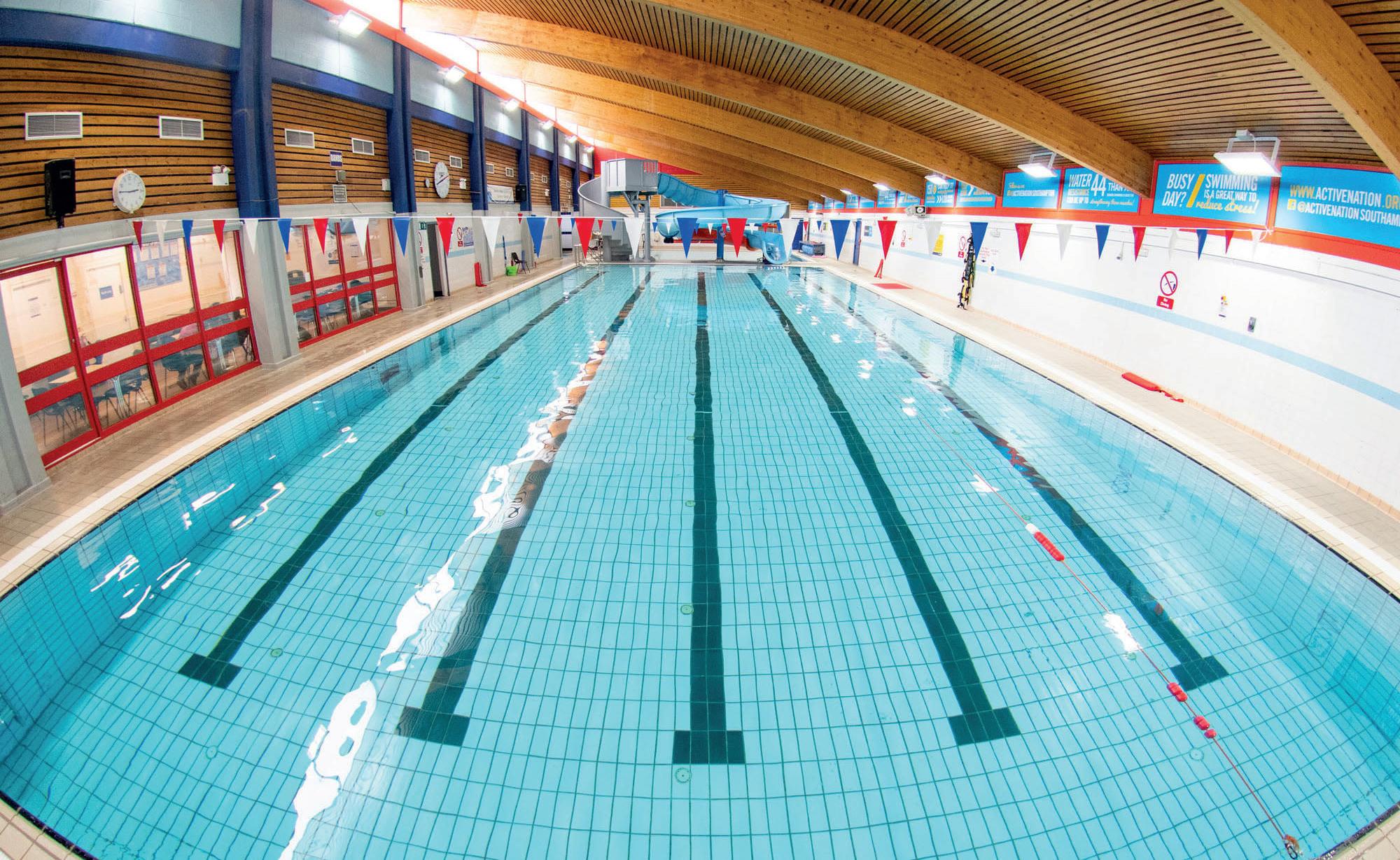
closely with Places Leisure to ensure a smooth and seamless transition.”
In addition to the facilities it was operating on behalf of Southampton City Council, Active Nation was managing facilities in Lincolnshire, Aldershot and Bristol.
At least two of these centres –
Yarborough and Birchwood leisure centres in Lincolnshire – were forced to close their doors when Active Nation stopped operations on 3 April. City of Lincoln Council has since said that it was working to open outdoor facilities at both centres on a “phased basis”.
A number of physical activity sector organisations have signed an open letter which outlines concerns over the impact the Labour government’s benefits reforms could have on disabled people and activity levels across the UK.
Led by the Sport and Recreation Alliance, the organisations have come together to highlight the potential significant adverse impacts of the Government’s proposed changes to health and disability benefits and employment support – set out in Pathways to Work: Reforming Benefits and Support Green Paper – on disabled people and participation in sport, recreation and physical activity. According to the letter, the changes risk creating even greater barriers for disabled people to access the physical and mental health benefits of an active lifestyle.

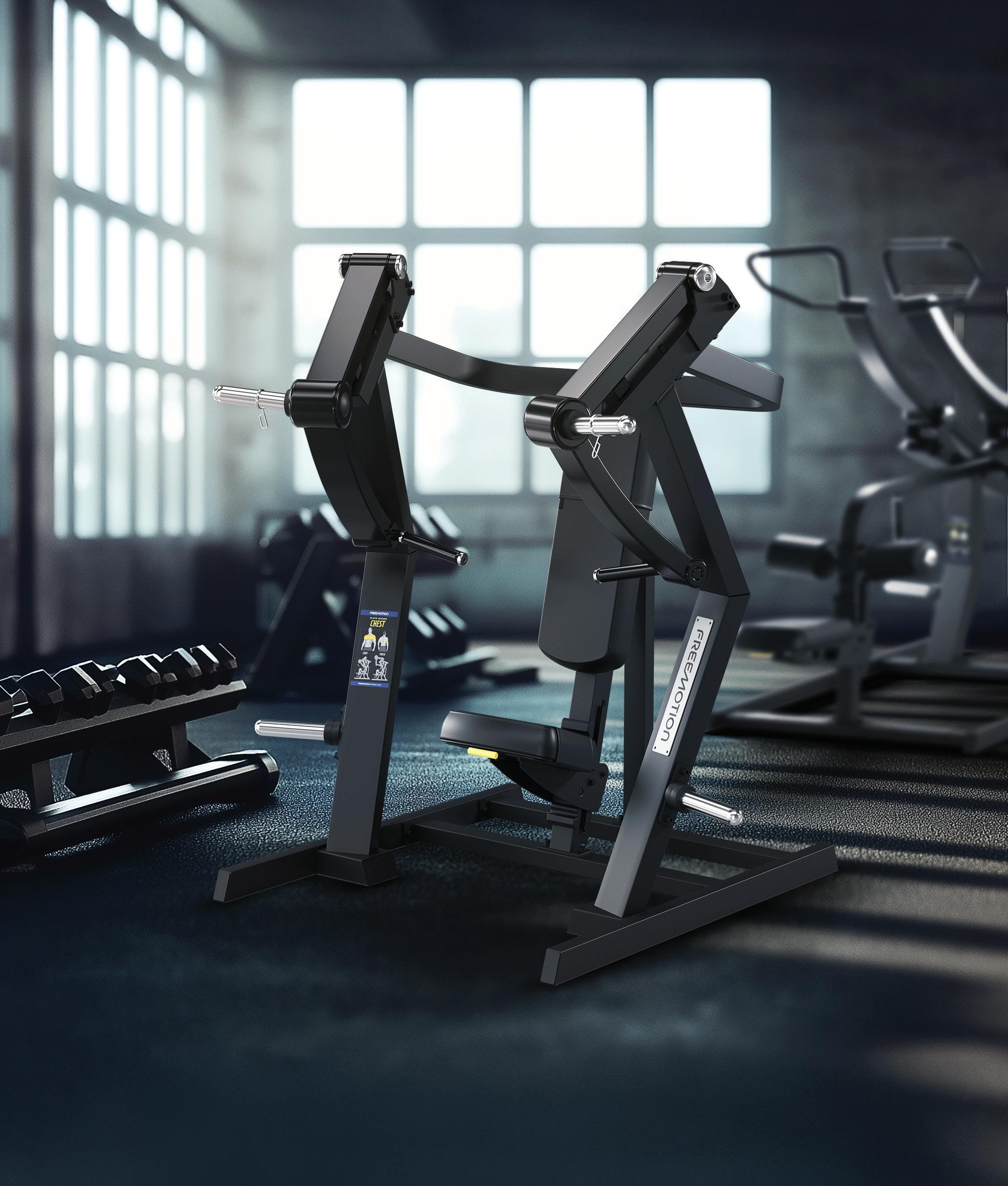
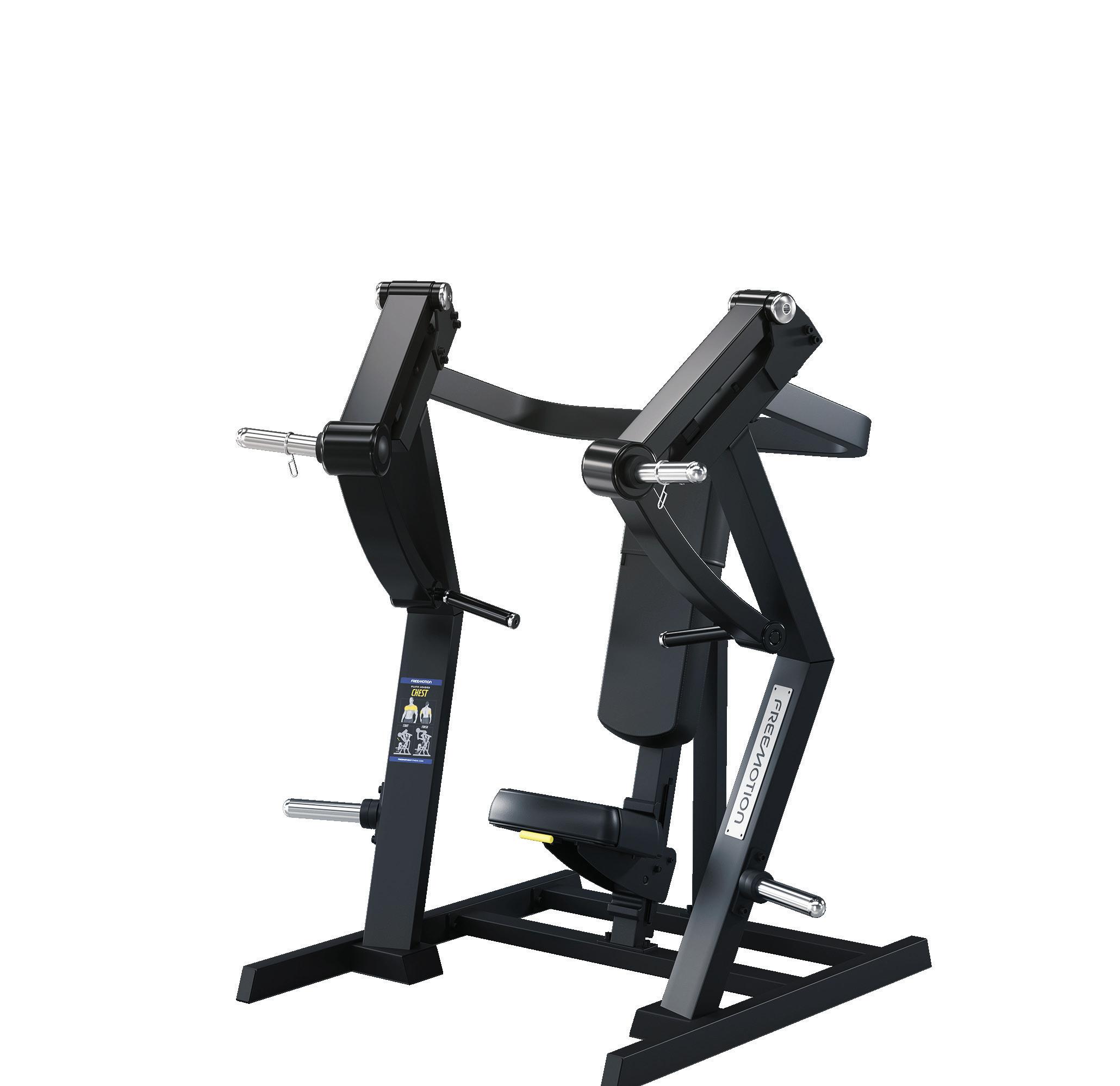

The Freemotion Plate Loaded line provides ergonomic strength-training machines designed to target key muscle groups. With adjustable seats, non-slip platforms, smooth pivot bearings, and durable stainless steel storage, these machines ensure comfort, stability, and long-lasting performance for upper body, lower body, and core workouts.


Construction could soon begin on the proposed Five Acres Leisure Centre in Gloucester, after revised regeneration plans for the area were approved by Forest of Dean District Council. The council secured planning permission in February 2024 to develop the first phase of a range of leisure, community and commercial facilities at the Five Acres site as part of the Levelling Up the Forest programme.
Due to rising costs, a project review was carried out by the council to ensure the redevelopment could proceed with options that are “affordable and sustainable”, both in terms of operating costs and income potential. The new design now incorporates facilities for a wider range of age groups, including soft play and café, power assisted exercise rooms, and a large 60-station gym. There will also be a repurposing of the Speedwell Building from the previous classrooms to create new office & community spaces, a café and outreach space for Hartpury University’s Aspiration Centre and these will be included in phase one of the project.
Phase two, which consists of the 3G artificial pitch and floodlights, was part of a separate planning application and funding submission – submitted in January 2025 – that the Council has been working on with the Football Foundation.

The £100m will be shared by the four home nations
The government has made a commitment to invest £100m in improving and upgrading local sports and physical activity facilities across the UK. The funding is expected to support hundreds of new and improved sports pitches, changing rooms, goalposts and floodlights to improve access to sport and physical activity for local communities.
Financial support will be targeted at deprived areas, with a focus on improving access and participation levels among underrepresented people – including women and girls, ethnic minority groups and disabled players.
The funding will be invested in sites during 2025-26, with £82.3 million allocated to projects in England (including a £2 million uplift of new investment committed in the current financial year), £8.6 million in Scotland, £6.1 million in Wales and £3 million in Northern Ireland. The government will work together with the English Premier
League, The Football Association and the Football Foundation in England, the Cymru Football Foundation in Wales and the Football Associations in Scotland and Northern Ireland.
The package delivers on the Government’s Plan for Change, with the funding designed to break down barriers to opportunity and tackle persistent health inequalities through prevention, which will support an NHS fit for the future.
Of the funded projects, at least 40% will have a multi-sport offer so that more people can participate in sports other than football, meaning more people can get access to a wider variety of sports and activities that appeal to them including rugby, cricket and basketball.
Culture Secretary, Lisa Nandy, said: “As we deliver our Plan for Change, we will remove barriers to an active lifestyle and increase opportunity for all, ensuring that people can access high quality facilities.”
We can answer these questions and more.
As the leisure industry’s leading source of market intelligence, we do the hard work of data collection to enhance insights and inspire growth across every sector and every business – including yours. With options to suit a variety of budgets, our bespoke Market Intelligence Service is the industry’s best-kept secret.
So, how can we help you? jamie@leisuredb.com
Leading industry bodies have revised their guidance on the use of safety technology in swimming pools.
The updated edition of The UK Swimming Pool Guidance for Automated Monitoring and Detection Systems was developed with the support of CIMSPA, RLSS UK, Swim England and ukactive.
The guidance – which covers both lifeguarded and non-lifeguarded swimming pools – offers updated advice on the selection, installation, operation and training requirements associated with automated monitoring and detection systems. It outlines key performance and design criteria that pool operators should consider when selecting and managing these systems.
Swimming pool technology continues to evolve, with more than 250 centres now using various technology systems to enhance safety and support operations.
The latest guidance recognises the latest changes in the fast-developing

The guidance recognises the latest changes in the fast-developing market
market and has been designed to meet the industry’s needs.
Jo Talbot, Commercial Director, RLSS UK, said: “Swimming pool supervision technology is advancing constantly.
The updated guidance helps operators adapt to new technologies, ensuring safer swimming environments for
everyone. Embracing technology can help improve safety outcomes.”
Tara Dillon, CEO of CIMSPA, said: “Through collaboration, this work demonstrates how safety can be further enhanced through technology deployment to help lifeguards who use their expert training”
Whitchurch Pool & Fitness Centre, in Shropshire, has opened its doors, replacing a former facility that was closed in 2020 due to structural issues.
The £13.7m centre boasts a 25m, six-lane community pool with a movable floor, a 41-station fitness suite, multi-purpose rooms, accessible changing rooms and a café. The design of the building – by Roberts Limbrick architects – includes sustainable measures to cut energy usage and reduce the impact on the environment. It has been accredited BREEAM Excellent and features a ‘Fabric First approach’, with thermally efficient cladding, roof structures and glazing reducing heat loss.
Further, solar panels have been installed on the roof to supplement electricity usage, and highly efficient air source heat pumps will provide heating and cooling within the building.

Sustainability is at the heart of the centre’s design


The partners will work closely with experts to monitor the roll out and impact of weight-loss medications
ukactive and CIMSPA have published guidance to help support the sport and physical activity sector better understand the use of weight management medications within the market.
Titled ‘Guidance for sport and physical activity on understanding the use of weight management medications’, the resource is designed to support best practice and to help foster collaboration with healthcare providers to deliver holistic and sustainable health improvements. It includes sections on understanding weight management medication, key areas of knowledge for the sector’s workforce, practical and ethical considerations, and advice for educational partners. There is also guidance on signposting to accredited healthcare professionals, who decide what is most appropriate for an individual to take, in discussion with patients, and considering relevant clinical guidance.
The document has been informed by evidence-based research and consultation with healthcare experts and professionals from the Royal College of General Practitioners (RCGP), Bodyline Medical Wellness Clinics and All About Obesity.
The guidance forms part of the ukactive and CIMSPA’s commitment to develop tailored guidance for facility operators, giving them the confidence to welcome and support members taking weight-loss medications safely.
The two organisations will continue to work closely with experts to monitor the roll out and impact of weight-loss medications and the operational implications for the sector.
Kenny Butler, Strategic Lead, Health & Wellbeing at ukactive, said: “Like any chronic, long-term condition, managing obesity can be complex, so this guidance will help operators of gyms, health clubs, pools and leisure centres to support people using weight-loss drugs.”
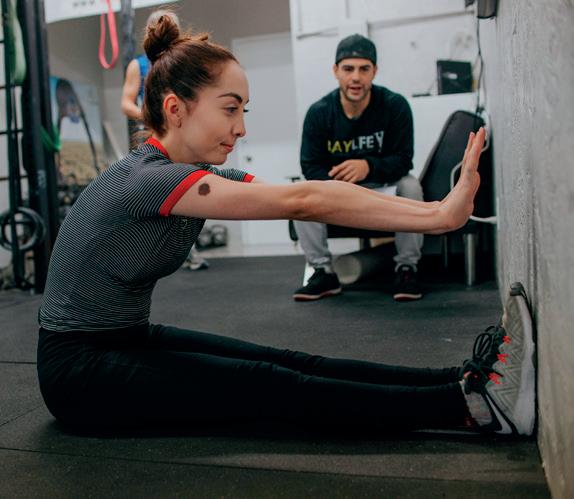
2,380 fitness roles were posted
The number of fitness and wellness instructor jobs being advertised rose by 7.7 per cent in February.
According to the Labour Market Tracker – by The Recruitment and Employment Confederation (REC) and data analyst Lightcast – more than 2,380 fitness and wellness roles were advertised across the industry last month..
The increase is far ahead of the overall increase in jobs. The number of overall active job postings in February 2025 was 1,550,191 – an increase of 0.1% on the number of job postings in January 2025.
Increases in the number of fitness and wellness jobs come despite cost pressures placed on the sector by the Budget last year.
Commenting on the figures, REC Chief Executive, Neil Carberry, said: “Businesses have been working hard to find growth in the face of rising costs since the Budget, and it is reassuring that some are now feeling more ready to hire.
“Growing stability of demand will reassure recruiters and policymakers, given the challenging outlook for business on National Insurance hikes, wage increases, global political shifts, and uncertainty about the future impact of the Employment Rights Bill.”
For more information on the Labour Market Tracer, visit: www.rec.uk.com/our-view/ research/labour-market-tracker
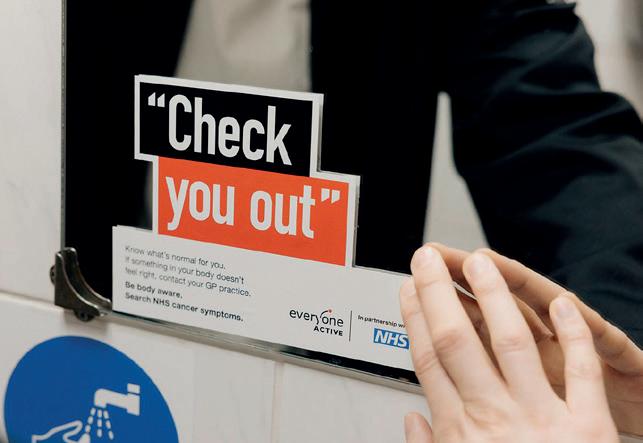
Everyone Active has teamed up with NHS England to launch a programme encouraging earlier cancer diagnosis.
Everyone Active is introducing awareness messaging at its 230 leisure centres across the country to help members recognise potential cancer symptoms and seek medical advice promptly.
As part of the partnership, changing rooms and toilet facilities at Everyone Active centres will feature new mirror stickers and posters displaying key signs and symptoms of cancer. These messages aim to raise awareness of bodily changes that could indicate cancer, encouraging people to be proactive about their health.
The reminders also reinforce the importance of visiting a GP if something doesn’t feel right –because while it’s often nothing serious, early detection can make cancer more treatable and save lives.
Dame Cally Palmer, National Director for Cancer at NHS England, said: “With over 230 leisure centres across the country, Everyone Active will help us improve body awareness and detect cancer earlier.
“This partnership builds on our work with supermarkets and health facilities to introduce important body awareness reminders in public spaces.”

A global survey of Pilates instructors has found that nearly 90% of the workforce “loves their job”.
An online global survey of more than 800 Pilates instructors, conducted by Pilates specialist, Balanced Body, suggested that nearly all love their jobs, look forward to going to work every day, have high career satisfaction and want to share their passion with others.
Some of the findings include that:
• 89% of instructors strongly agree that they love their job as a Pilates instructor
• 92% would recommend Pilates as a great career for others
• 79% look forward to going to work every day.
Among the reasons why instructors love their jobs was the feeling that they were able to “help others make a difference in their lives”.
The survey also included insights on the wider Pilates industry. The findings suggest that the sector is still growing rapidly.
The survey suggests that 77% of Pilates studios are growing their reach while 67% of studios are selling out classes. The number of new instructors entering Pilates has grown 15% since 2015 while a third (34%) of instructors have started in the sector during the past seven years.
Nearly 40% of studio owners say they need more Pilates instructors.
Joy Puleo, Director of Education, Balanced Body Education, said: “Our research underscores the demand for Pilates is higher than ever, and – with the increasing awareness of the importance of the mind-body connection, core strength and flexibility – more people are seeking out Pilates as a way to improve their overall health and fitness.
“With participation at an alltime high, the demand has never been greater for passionate and enthusiastic industries. Pilates instructors love their jobs and 72% report high career satisfaction.”













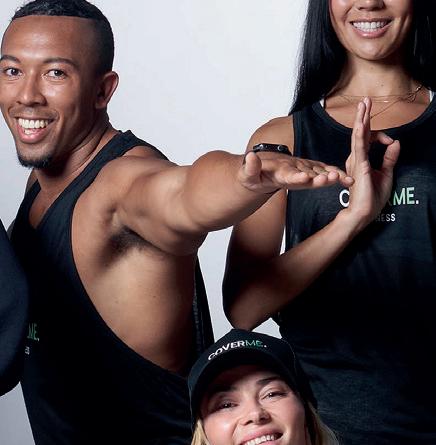
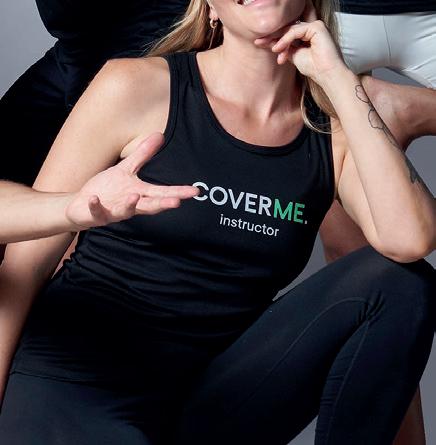







Non-profit facility operator, Inverclyde Leisure, has launched a bespoke, “one of its kind” functional fitness space at its Waterfront Leisure Complex in the West of Scotland.
The new F.A.S.T Studio (Functional Athletic Strength Training) is part of Inverclyde Leisure’s new F.A.S.T branded group fitness sessions, which utilises equipment supplied by Escape Fitness.
Delivered by Escape as a turnkey solution, the studio features equipment and programming, including Escape’s new strength training solution, Octagon LOAD. LOAD combines the benefits of traditional plate-loaded machines with variable resistance technology. It uses sled tracks, battle ropes, cable stacks and a huge selection of Escape functional accessories and equipment to deliver the “next generation” of functional and strength training.
Steven Sykes, Business Develoment and Relationship Manager at Escape Fitness, said: “Inverclyde Leisure is the first UK operator to adopt LOAD and has integrated the full
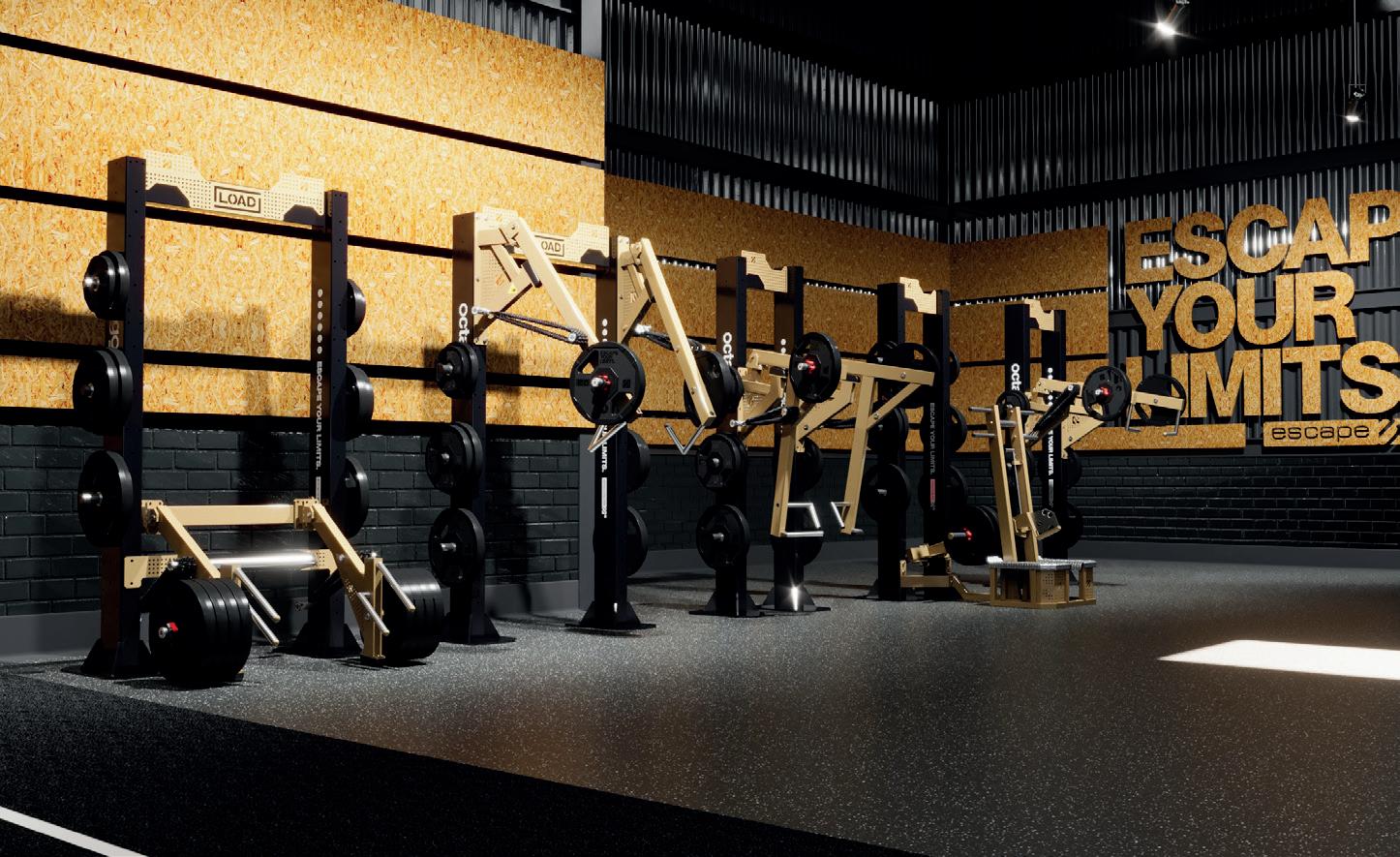
The studio features equipment and programming
complement of ‘STATIONS’: SQUAT, DRIVE, LIFT, PRESS and ROW.
“While each station is designed as a standalone unit, all can interconnect and incorporate equipment storage to deliver a whole body training solution focused on developing power, speed and athletic strength.”
Kieron Vango, Inverclyde Leisure’s CEO added: “This unique concept utilises the innovative band-assisted LOAD Stations and Escape’s functional equipment range in a studio environment. It enables us to deliver a fast transition circuit training experience.”
Jonas Software has announced the acquisition of Intelligent Counting, a specialist in capacity management and visitor monitoring solutions. Originally developed for the heritage industry, Intelligent Counting established itself as a trusted partner for institutions such as National Museums, RAF Museums and galleries nationwide. Intelligent Counting is now poised to launch in the fitness industry.
Intelligent Counting’s solutions are tailored to measure and monitor visitor activity in high-traffic facilities and could provide insights from areas such as swimming pools, wet rooms and changing zones.
“Joining Jonas Software is an incredible opportunity to expand Intelligent Counting’s reach and deliver our solutions to an entirely new sector,” said Philip Montague, of Intelligent Counting.



Research by McMaster University in Canada has challenged the common belief that timing resistance training to specific phases of the menstrual cycle boosts a woman’s body’s ability to build muscle and strength.
A study by kinesiologists at MacMaster – a public research university in Hamilton, Ontario, Canada – showed that exercising at various points in the cycle had no impact, positive or negative, on the synthesis of new muscle proteins, a process essential to building and maintaining muscle.
The results, published in the print edition of the Journal of Physiology, seem to debunk the popularly touted practice of cycle syncing, or tailoring workouts to align with the way hormones change throughout a woman’s menstrual cycle.
“Our findings conflict with the popular notion that there is some kind of hormonal advantage to performing different exercises in each phase,” said Lauren Colenso-Semple, lead
author of the study. “We saw no differences, regardless of cycle timing.”
Cycle syncing has been made popular by internet influencers to coordinate workouts, certain diets and lifestyle behaviours with the menstrual cycle. There are also fitness apps for tracking cycles, and social media channels are rife with advice and recommendations.
Proponents routinely cite a handful of scientific studies on animals as evidence that fluctuations in ovarian hormones can affect how human muscles respond to exercise – a view that the McMaster study now challenges.
“Our work shows that women who want to lift weights and recondition their muscles should feel free to do so in any phase of their cycle. There is no physiological difference in response to the exercise,” says Stuart Phillips, the Canada Research Chair in Skeletal Muscle Health at McMaster who supervised the study.
“It is important to tailor your training to how you feel.”

App democratises the process of buying and selling gyms
Anyone looking to buy or sell a gym now has instant access to the marketplace courtesy of a new app, Sell My Gym, which launched at the end of February. In much the same way as Rightmove allows anyone to browse houses for sale, setting filters such as geographic area, so Sell My Gym allows users to browse bricks and mortar gym businesses for sale.
Personal trainers looking to take the next career step are the key target audience, so the app also offers a range of support services to help them get started.
At phase one, that includes access to business finance via a partnership with Johnson Reed Business Finance; refurbished gym equipment packages through PSLT; new gym equipment from Keiser and Jordan Fitness; and gym management software from Xplor. It also includes access to Sell My Gym’s online marketplace for ad hoc purchases of used equipment direct from the seller, and to educational materials such as a free step- by-step eBook and affordable online courses.
The app is the brainchild of former personal trainer Colin Berry, who identified an unmet need for support among PTs looking to take the next step.
At launch, the focus is primarily on independent gyms looking to sell to individuals.















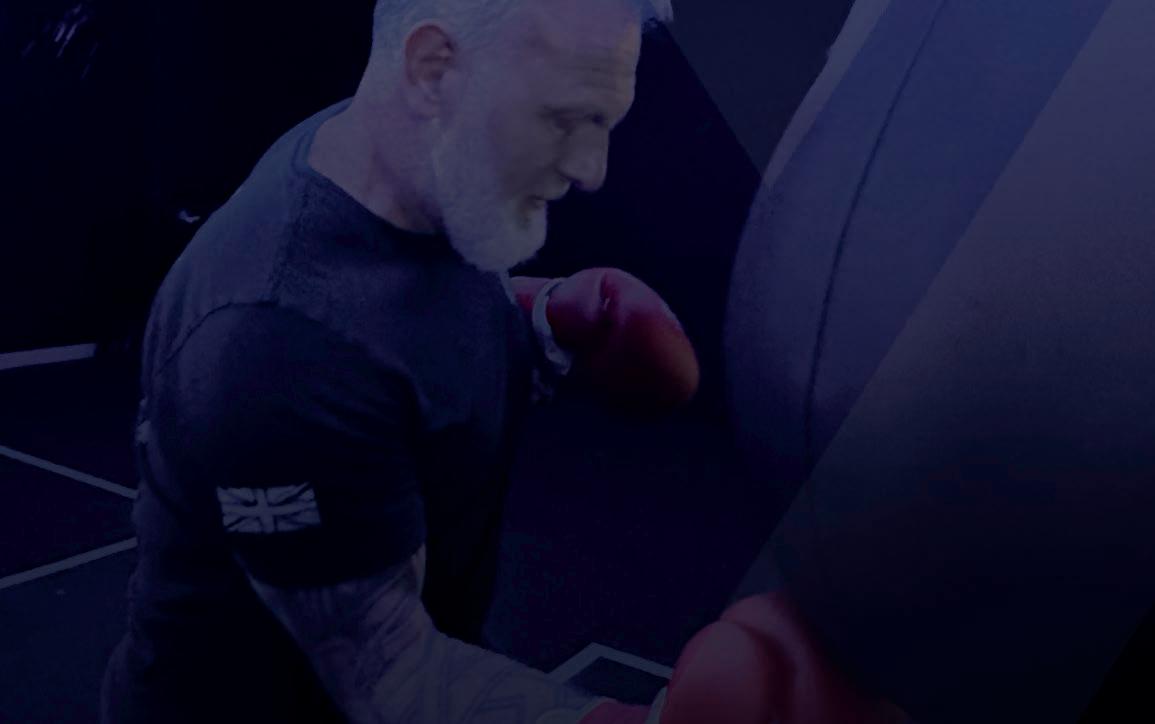









The fitness industry is on the brink of a seismic shift, says Lianne Clark, Head of Business Development at YMCA Awards. This is because of the huge growth in demand for Reformer Pilates classes
Over recent years, Pilates has seen steady growth, with Mat Pilates becoming a mainstream class in most facilities. However, the recent explosion of Pilates Reformer raises a critical question: is our workforce ready?
The UK Pilates and yoga studio market was valued at over £900 million in 2023, with 4,476 studios across the country. The market is now projected to reach a staggering £1bn by 2025. Online searches for Pilates skyrocketed by 124% from 2022 to 2023 and Yelp predicts Pilates will be one of the top wellness trends this year, with a 71% year-on-year increase in searches.
The demand for Pilates Reformer is undeniable. Pilates studios across London reported a 65-95% increase in class bookings over the past 12 months. Globally, the Pilates Reformer market is expected to grow at a CAGR of 5.50% from 2024 to 2031. Major cities like Manchester, Birmingham, and Liverpool are experiencing a 250% annual increase in the number of Pilates Group Reformer studios. These statistics suggest that introducing Pilates Reformer classes could significantly boost health club membership and retention rates. However, more specific research is needed to provide concrete figures on membership increases as the market is only just starting to really take off.

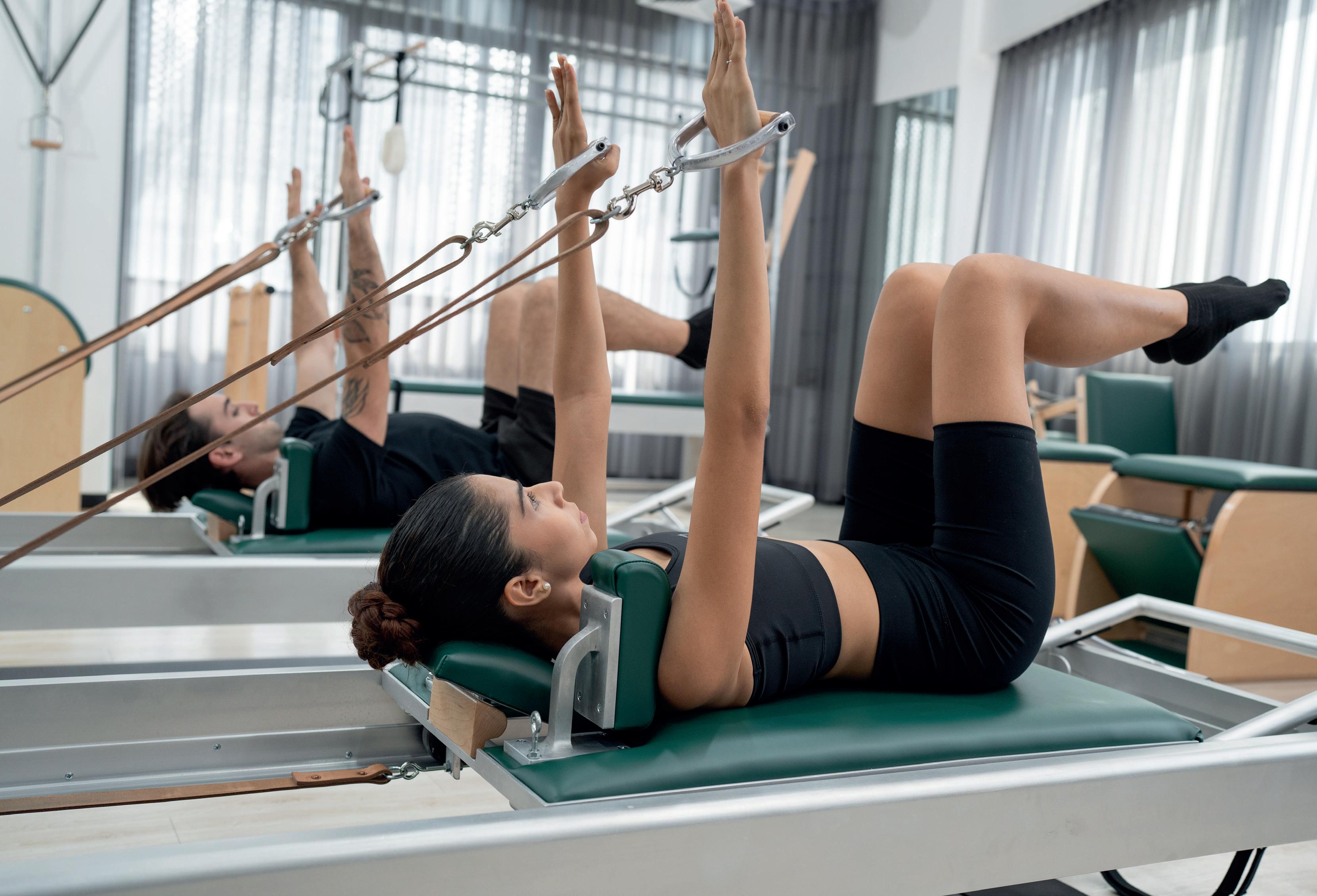
The surge in demand for Pilates Reformer teachers in the UK has created an urgent need for quality training providers to deliver regulated qualifications. As the Mat Pilates market grew, so did the demand for regulated qualifications awarded by recognised Awarding Organisations. These organisations develop qualifications for the register of regulated qualifications, which in England is overseen by Ofqual. This ensures that the qualifications meet high standards of quality and reliability, making them a trusted mark of excellence. While unregulated provision can be good, the Ofqual logo on a certificate assures
With the UK market projected to hit £1bn by 2025, the demand for Reformer instructors is surging – yet a significant workforce gap remains

consumers and employers of its quality. Now, the same trend is happening rapidly for Pilates Reformer.
YMCA Awards have anticipated this market need and offer a suite of regulated Pilates Reformer and Studio Reformer qualifications – the first of their kind, for training providers to deliver. Training providers must ensure that if they offer Pilates Reformer qualifications they are approved to deliver them.
Awarding organisations work closely with CIMSPA to develop workforce standards, ensuring we have high-quality instructors in growing markets. CIMSPA is actively working to address the gap in workforce standards as new physical activity trends take hold in health clubs and gyms across the UK.
Want to stay ahead of the curve? Training providers and operators must recognise the urgency of this trend and invest in regulated qualifications and qualified instructors to ensure a well-prepared workforce. By doing so, you’ll not only meet the growing demand but also position your facility as a leader in the fitness industry.
Let’s ensure our workforce is ready to meet the demands of the Pilates Reformer explosion and continue to drive the fitness industry forward. For further guidance on finding an approved training provider, see: www.ymcaawards.co.uk/centres/. To become an approved training provider contact YMCA Awards: awards.support@ymca.co.uk

The first UK Health and Fitness Market Report shows that the sector is growing on all fronts, from private low-cost gyms to publicly-operated leisure centres
The UK’s physical activity sector is growing at a rapid speed, with market penetration rate hitting 16.9% and annual revenues increasing by 8.8% to more than £5.7bn. The figures come from the first UK Health and Fitness Market Report, published by ukactive in collaboration with 4GLOBAL and Sport England with analysis from Deloitte. The report brings together data from every part of the UK’s physical activity and fitness market, covering the public, private and independent sectors.
The data powering the report is described as “unrivalled sector coverage”. Sport England’s Active Places Power platform forms the base of site-based analysis, alongside ukactive’s Private Sector Benchmarking project (private operator metrics). The report also takes in data collected from three leading Leisure Management Systems (independent operator metrics); and 4GLOBAL’s Moving Communities data (public operator metrics). The result is a sample size of 75%, 77% and 74% across the private, independent, and public operator sectors respectively, providing a high level of market coverage from which data could be extrapolated. Operator data was supplemented by ukactive’s
Consumer Engagement survey data, providing insights into consumer behaviours and trends. Driven by access to unprecedented operator and consumer insights data, analysis suggests a resilient market with robust growth metrics and diversified offers which capitalise on emerging consumer trends.
The report shows that around 11.5 million people over the age of 16 are currently members of a health and fitness club across the UK and records the latest number of clubs as 5,607 (based on health and fitness clubs open to the public, with resistance and/or cardiovascular equipment). Membership revenue across the sector has also risen from £4.05bn in 2022 to £5.19bn in 2024, resulting in a compound annual growth rate (CAGR) of 13.1%. This has been thanks to membership numbers showing growth – from 9.9 million in 2022, to 11.5 million in 2024 – despite the backdrop of cost-ofliving pressures. According to ukactive, this shows that consumers continue to value gym and fitness memberships as a priority for their discretionary spend. In 2024, the sector saw a 10% year-onyear increase in membership income. This growth is fuelled by a rise in members across all market segments, but distinct drivers are behind revenue growth across the different operator types.

revenue hit £5.7bn, up 8.8% year-on-year, with 11.5 million members nationwide
For private operators, year-on-year membership income growth (11%) is in large part a result of the continued expansion of flexible (non-contract) low-cost operators, who are capitalising on growing demand from price sensitive consumers.
At the other end of the market, premium operators have sought to improve and expand their membership offerings, tapping into demand for a wider range of amenities that cater to a holistic approach to wellbeing, such as luxurious spa facilities, social spaces and convenient work-from-gym options.
Mid-market operators have also sought to improve their value proposition, looking to capitalise on a shift in the relative value consumers are placing on fitness.
Independent operators have managed to follow suit, also growing membership income by 11% yearon-year. Independent operators were found to
Growing membership and revenue
Membership grew by 6.1% in 2024 compared to the previous year, reaching 11.5m members. Total income also increased by 8.8% reaching £5.7bn.
Increased penetration rate
16.9% of the UK population now have a membership, rivalling the highest performing European markets.
Expansion of Low-cost operators
Low-cost operators have capitalised on growing demand from price sensitive consumers.
Mid-market progress
Mid- and premium-market operators have sought to improve their value proposition, looking to capitalise on a shift in the relative value consumers are placing on fitness.
Public operators
generate the lowest revenue per member, largely driven by price reductions within the sector as they compete with low-cost gyms in their areas, signalling that a similar price-sensitive dynamic is at play across both commercial operator types
For public operators, revenue growth of 8% has been achieved despite a slight decline in the number of clubs year-on-year. Unlike private operators, whose clubs operate at high levels of utilisation, the public sector has been able to grow members and membership income via improving efficiencies and better utilising the capacity of their existing sites. This is in part down to investment in the refurbishing of existing sites, but also a result of consolidation in the market, with larger national operators increasingly taking over small local authority (LA) or trust-run facilities. According to the report, this positive trajectory reinforces the vital role these facilities play in
Public sector operators are seeing continued market consolidation and are focused on improving efficiencies and increasing utilisation rates.
Technology enabled Technology is seamlessly integrated into the fitness journey, offering personalised experiences and datadriven insights.
Investment landscape
Significant M&A activity in 2024 highlights investor confidence in the sector’s long-term growth potential, with both UK and international players seeking expansion opportunities.
Ongoing cost pressures
There remain underlying cost pressures due to inflation, rising operating costs, and policy changes.
The rise of the experience economy
Fitness facilities are transforming into vibrant social hubs, fostering community and offering diverse experiences.
Generational shift
Younger generations are demonstrating higher levels of physical activity and gym membership, indicating a shift in societal priorities towards health and wellbeing and suggesting that for younger people, gym membership is essential.
Social Value contribution
The industry continues to play a crucial role in delivering health and wellbeing outcomes promoting active lifestyles and contributing to preventative healthcare strategies.

UK physical activity sector revenue hit £5.7bn, up 8.8% year-on-year, with 11.5 million members nationwide
Some of the other headline data in the report includes:
NUMBER OF CLUBS 5,607 up 0.9% from 2023 (5,555)
NUMBER OF UK GYM OR LEISURE FACILITY MEMBERS 11,486,680 –up 6.1% from 2023 (10,821,402)
TOTAL FACILITY VISITS
616 million up 8.2% from 2023 (569 million)
TOTAL INCOME £5.686bn up 8.8% from 2023 (£5.224bn) TOTAL PENETRATION RATE 16.9% up 0.9% from 2023 (16.0%)
promoting health and fitness at the local level, making them a key asset for local authorities committed to improving community health and well-being. At a quarterly level, gym and leisure facilities continue to post the highest membership numbers at the beginning of the year. In 2024, operators managed to maintain a large proportion (c.80%) of that growth through to year-end through both retention and new sign-ups offsetting any large membership losses.
“The report demonstrates the demand for health and fitness services, despite challenging economic conditions for the sector due to the energy crisis, rising cost of living and increasing operating costs,” ukactive said.
When it comes to the insights from ukactive’s Consumer Survey, it shows that four fifths (81%) of survey participants engaged in some form of moderate or vigorous physical activity per week. Approximately one quarter (23%) of survey participants stated that they exercise for more than 150 minutes per week and 19% reported not doing any physical activity at all.
Survey respondents in London were found to be the most active, with 87% reporting doing some form of physical activity (at least up to 30 minutes) per week, whereas the physical activity rates across Scotland (77%) were the lowest across the UK.
Through consultations with industry leaders, the report paints a picture of both the opportunities and challenges that are shaping the future of the industry. From shifting consumer behaviours and digital transformation, to evolving business models and public health priorities, the landscape is undergoing significant change.
One of these is a deeper integration with health systems. According to the report, the fitness industry can play an increasingly important role in healthcare pathways. Collaborations with healthcare providers, particularly in areas like weight management, rehabilitation and mental health programmes, will become more prevalent. This shift aligns with the growing strain on the NHS and the broader emphasis on preventative care strategies.
In its conclusion, ukactive says that the report is “testament to sector-wide collaboration” to drive forward and raise the sector’s reporting and understanding.
“The utilisation of consistent, regular, credible data sets that cover public, private and independent operators, combined with consumer polling and market performance data give our sector the foundation it requires, and deserves, to grow and succeed,” it says.
To download and read the full report, visit: www.ukactive.com/wp-content/uploads/2025/04/ UK-Health-and-Fitness-Market-Report-2025.pdf
Huw Edwards CEO ukactive
Following his big announcement on the abolition of NHS England, the Prime Minister sat down with the Institute for Government to discuss the changes and the motivations behind them. The PM revealed a sense of frustration at the pace of change and that he’s someone who wants “to get things done”. He also wants his ministers to feel empowered to drive change at speed and in terms of delivery he acknowledged that there was a need to “add a bit of oomph” into the Number 10 leadership machine on this agenda.
If the PM wants a partner on that journey to add “oomph” he could find no better companion than the thousands of gyms, pools and leisure centres that deliver “oomph” to their millions of daily users. That’s in their very DNA: to drive, with energy and dynamism, the quest to help make this nation stronger.
Our nation’s gyms, pools and leisure centres are currently playing a fundamental role in supporting the physical, mental and social wellbeing of millions of people across all ages and backgrounds. However, there is much more potential to be unlocked. Through supporting the greater expansion of facilities and services in communities, millions more people can be engaged, and in turn help take pressure off the NHS and help drive greater economic growth. This will provide solutions for two of the big challenges the Government is facing. Indeed, our The UK Health and Fitness Market report 2025 reinforces this in the strongest possible way. It shows how it is the perfect time for the Prime Minister and his ministerial team, to deepen this partnership with our sector. Firstly, when it comes to the economy, our government is desperately seeking sustained economic growth and we are a sector that is growing. Our sites are growing, our members are growing, and our income is growing.
The report shows that membership growth is more than one in every six within the UK population – 11.5 million people – and revenue across the sector has risen from £5.2bn in 2023 to £5.7bn in 2024 –an impressive 8.8% increase. All of this has been achieved against a difficult economic backdrop.

If the PM wants a partner to add “oomph” he could find no better companion than gyms, pools and leisure centres
So, why is this? The answer lies in changes to the public’s attitude to their health and wellbeing. More and more people are recognising the benefits of being more active and prioritising their time and money in pursuit of their own physical and mental health. To support this, ukactive’s Consumer Engagement research shows that Britons are spending three times more on their health and fitness than they are on drinking socially (15% vs 5%), with options such as eating out (9%) appearing lower on people’s spending priorities, suggesting that many are choosing to invest their money in gym memberships for their long-term health and wellbeing.
We know the Government needs quick wins and we are growing, we are attracting inward investment, we are expanding the range of employment opportunities for people at all levels of attainment and ability. We are running with, rather than against, the public grain.
Secondly, if economic growth is the number one priority, improving national health is fundamental to this. If we can help people back to good health, then we can help them back to work. The recent debate on welfare reform placed insufficient focus on how we improve our national health, with ill health running like a fault line through our communities.
We want this Government to be decisive in its decision making and empower our sector to drive change through greater economic growth and health improvements in this parliament. This is a golden opportunity for the Government to meet the public and the sector where they are on this agenda, fully engage, and work together to build a better, stronger Britain.






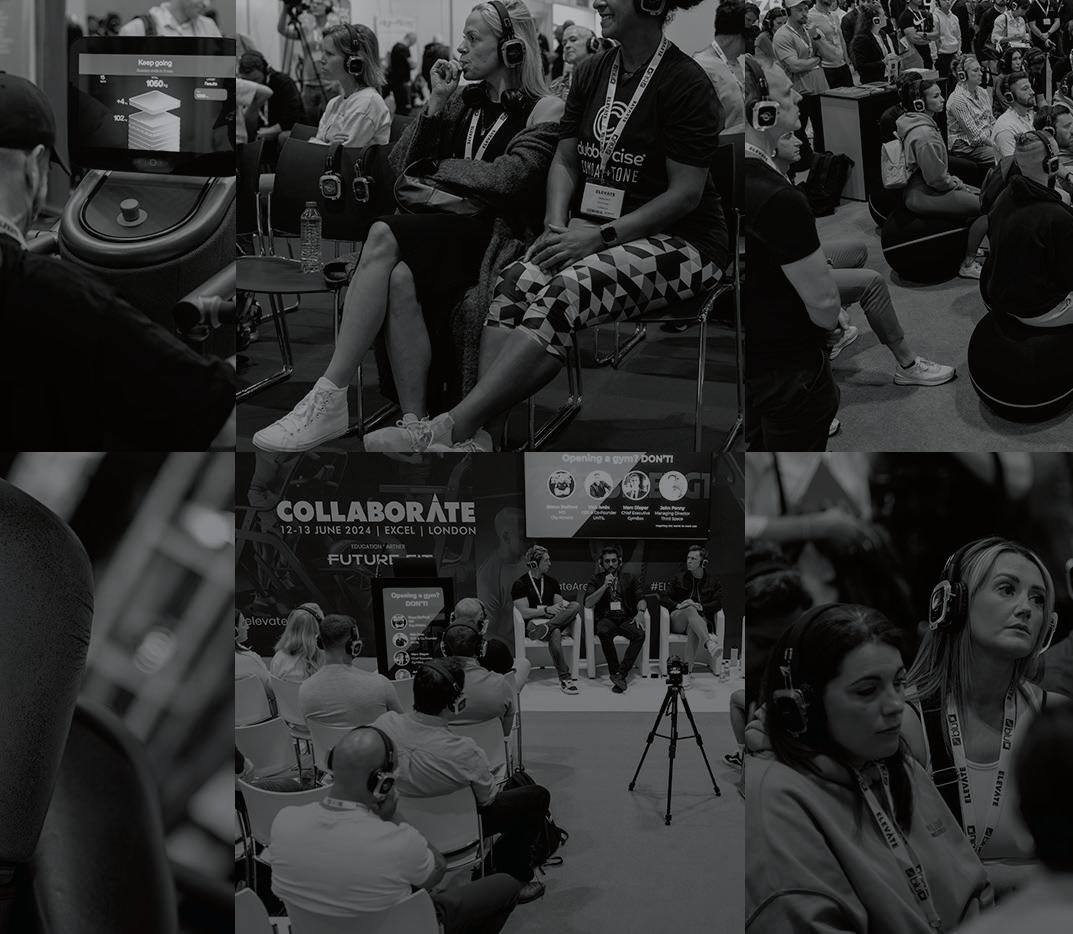

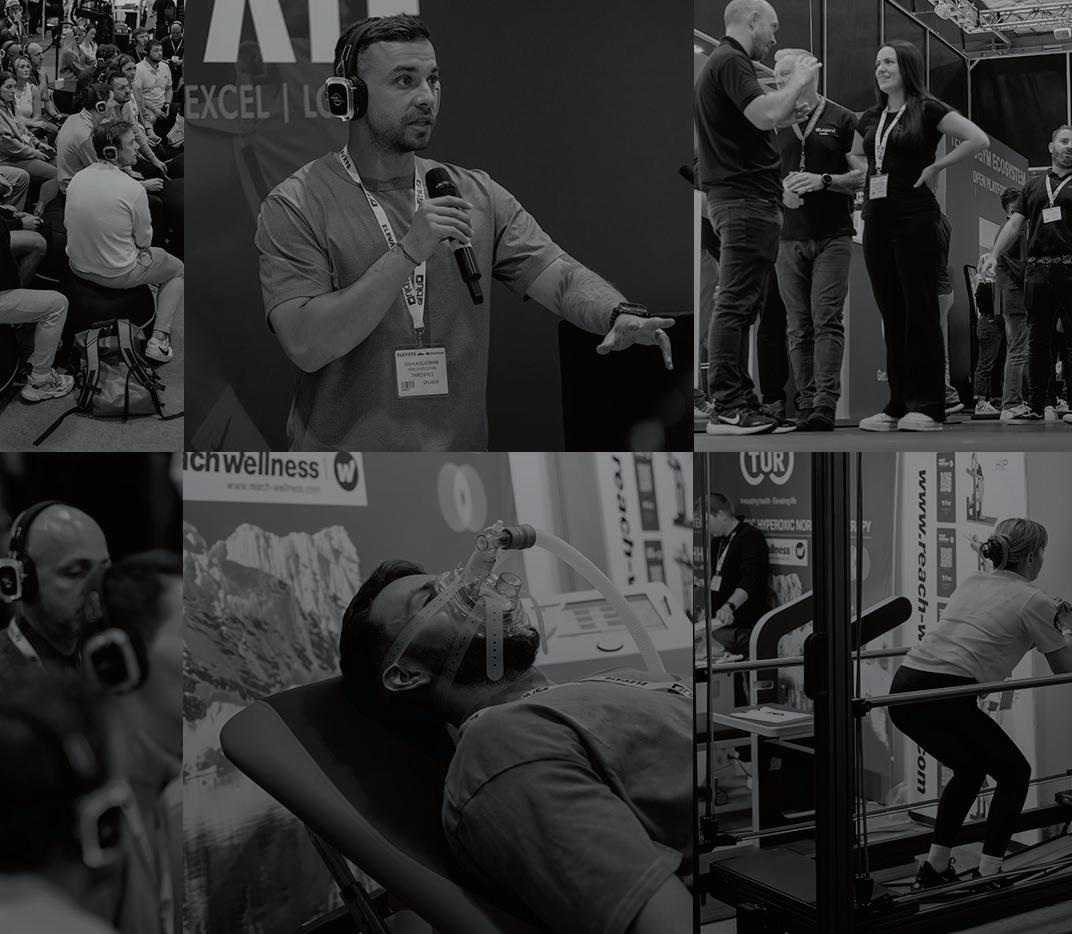


The latest active-net networking event took place in March. Matthew Smallwood reviews the event, which attracted more than 100 delegates from across the physical activity sector
Two back-to-back days, packed with more than 100 like-minded peers from across the physical activity sector, each attending 16 personalised operator and supplier meetings to forge new connections. Throw into the mix seven inspirational guest speakers with unique insights and two high energy exercise classes and you have, in a nutshell, what active-net is all about.
Taking to the stage
Active-net is one of the UK’s leading physical activity networking events, blending a mix of education, insight and connection to create an approach that drives best practice, innovation and partnership. The format is designed to invite operators and suppliers from all aspects of the sector to meet, aiding each other’s expansion and progression, against a back drop of shared research and learning.
The event opened with a keynote speech by Mike Hill, founder of active-net. ukactive’s Marianne Boyle, CIMSPA’s Colin Huffen, Carl Bennet and Dr Hussain Al Zubaidi were then invited to take part in a panel discussion exploring the language of health.
The day also tackled key topics facing the sector right now – specifically, weight loss injections and

whether they act as a friend or foe to the physical activity sector. On the topic, Dr Hussain Al Zubaidi provided his perspective on how the physical activity sector can position this movement. There was also a discussion on how investment from the NHS can benefit by driving new people into physical activity and evoke behaviour change alongside medical intervention.
Insight and learning
Delegates were also given an opportunity to learn about data-driven decision making in a session led by Julie Allen, Business Development Director for Active Insight. The session also included Emma Bernstein, Sport England’s lead on Moving Communities; HireBOB.ai’s Tamara Bailey and Suzanne Gabb from Good Boost. The session shared a number of new findings from the recent Active Insight Consumer Panel, which took place earlier this year, looking at opportunities to improve data-lead decision making on secondary spend, service provision and retention.
active-net events mix networking and business meetings with educational sessions

Following the presenter and panel format, delegates broke off into the one-to-one networking format, with pre-arranged 20 minute meetings between buyers and suppliers. A wide range of suppliers, ranging from uniforms, training and CRM solutions to equipment, had the opportunity to meet local authorities, LATCos, universities and leisure operators. During the meetings, new connections were made and old partnerships strengthened and developed.
With active-net’s headline event now completed for 2025, attention turns to the remaining calendar of
events. This includes active-net Padel on 3 June – a brand new event focused on the fast growing padel sector – and active-net Education, which targets multi-academy trusts, county education authorities, independent schools and colleges looking to open up their sports facilities to their communities.
Later in the year, Crieff Hydro will host an event aimed at the Scottish physical activity sector, while October will see the hosting of an event targeting the open water swimming market.
● For more information on the active-net event series for 2025, please visit https://active-net.org/ or connect at https://www.linkedin.com/company/active-netuk



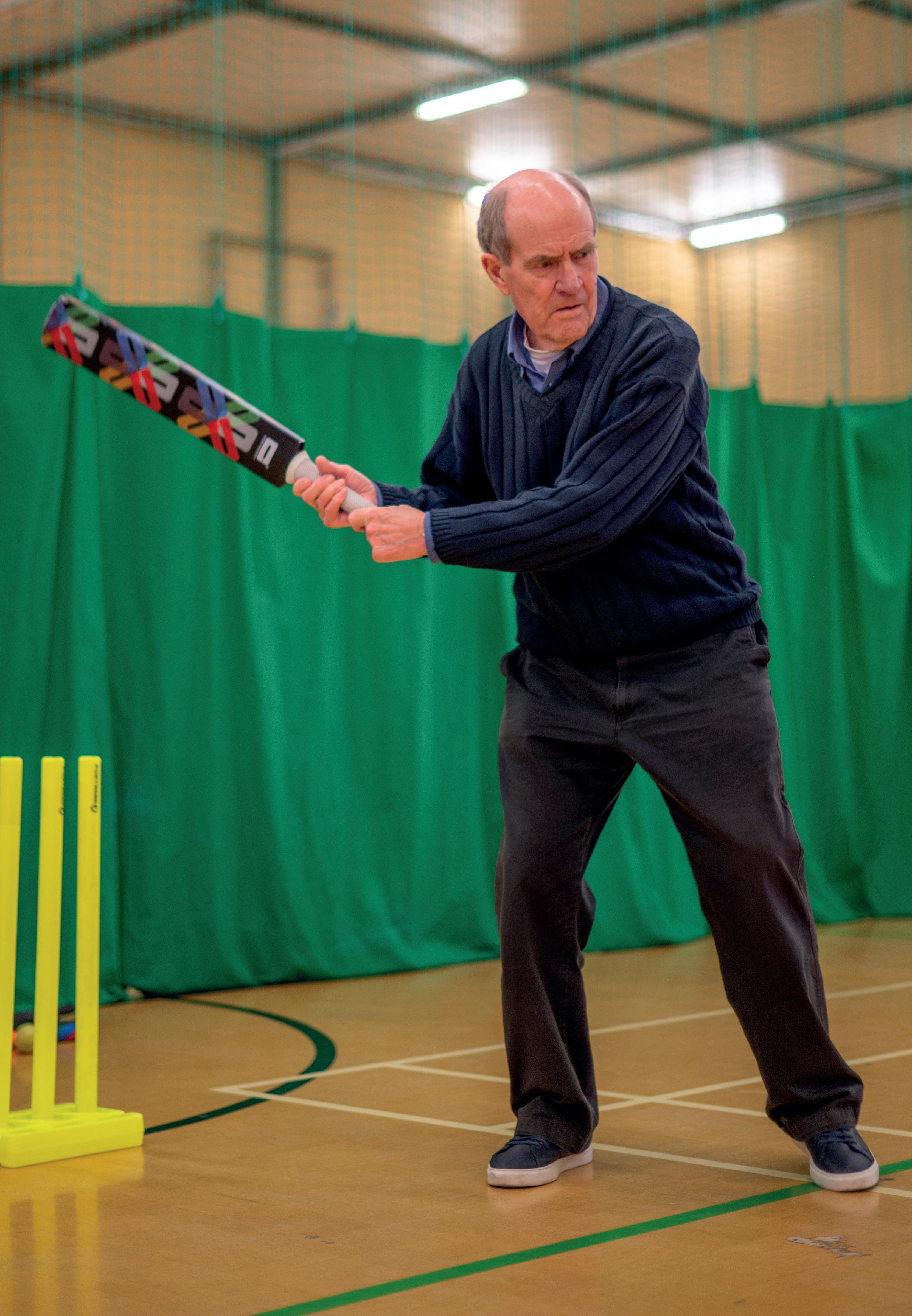
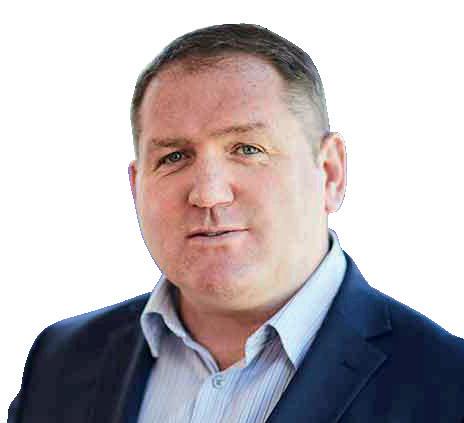
Mike Lyons, CEO, Horizon Leisure:
Walking programmes can help operators tap into new audiences, including older people, those with injuries or in rehab and those who are looking for friendship. They can do this through offering guided group walks, walking sports – such as football or netball – or confident walking sessions for people aged 60+.
We work in collaboration with our local Vine Medical group to run monthly walking sessions, signposted by the GPs, for people who are struggling with loneliness, social isolation and anxiety. The sessions give their patients the opportunity to get out of their homes and get moving, while meeting other local people.
We also work with ‘Get Up and Go’, a Havant Council project funded by Hampshire County Council, to organise walking netball, walking cricket (dementia friendly) and walking football at our leisure centres. Interest in all of these has really expanded, with our walking netball regularly attracting 70 plus players a month.
Our walking sport sessions happen at nonpeak times during the day to target those that may have retired, meaning the activities don’t clog up our sports halls at peak times, which are often dedicated to after school activities.
The sessions give their patients the opportunity to get out of their homes and get moving, while meeting other local people
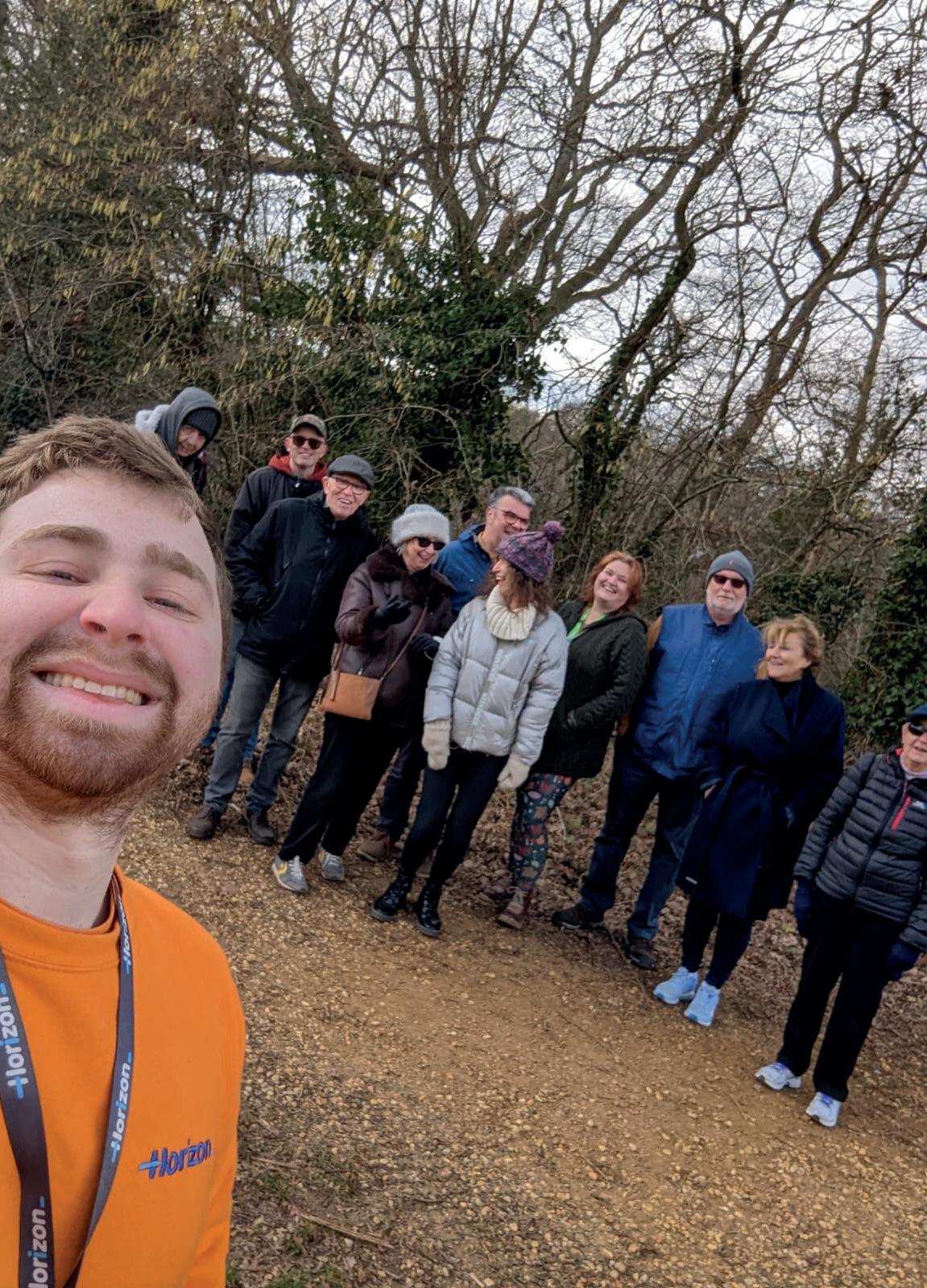
Inclusive

Working in partnership with Horizon Leisure has been a positive collaborative approach, helping patients that might need social direction and the ‘worried well’ to take a more proactive approach to their health. The monthly health walks start from one of our surgeries in Waterlooville, Hampshire and are led by an expert from Horizon Leisure. It’s been incredibly powerful to see friendships blossom, as well as watching people learn to manage their health or emotional wellbeing better. The walks also shift perceptions of what a GP practice offers. Patients begin to see us as more than just a place for medical treatments and prescriptions. Having both a fitness expert from Horizon and a healthcare professional from the surgery on the walks provides an added level of reassurance and encouragement, making a real difference in people’s lives. The partnership also helps patients see how health and fitness connect, making them more comfortable to engage in programmes and activities that Horizon Leisure offers.
Amy Brittain, Healthy Lifestyles Programme Manager,
Mytime Active:
We organise four wellbeing walks a week in the Midlands. Participants start to feel a sense of belonging in a harmonious group during the warmer months and so are more likely to transition to our leisure centres and wellbeing hubs in the winter when the weather turns.

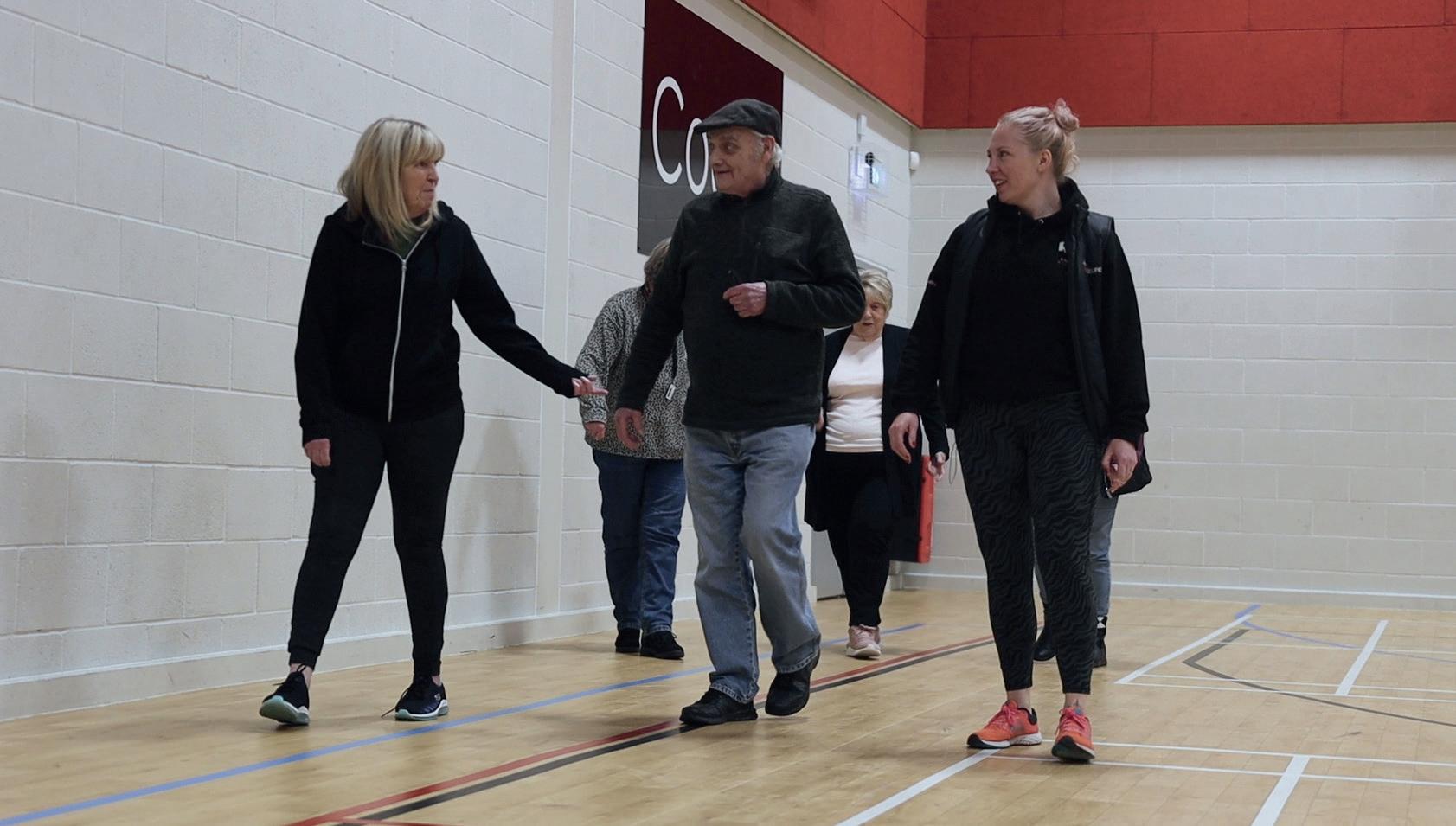
Lisa Arrandale, Active Communities Officer, Life Leisure: At Life Leisure in Stockport, walking is extremely important to our community programme and we have created a pathway that includes walks for all ages and abilities, with a clear progression route.
Linda (77) and Norman (73) started taking part in the wellbeing walks as part of a six-week Fresh Start Friendly programme at Mytime Active’s Hatchford Brook Golf Centre and Gym.
Linda explains: “From the very first session we met lovely, like-minded people and quickly hit it off. The personalised approach was especially helpful for my husband who is registered blind. We liked the guided walks around the park and workouts tailored to our individual abilities. But what we loved most was the social side. After a walk or workout, we’d gather in the café for coffee and conversation. Walking and talking, what’s not to love!
“We continued our membership after the six-week programme and now visit twice a week to meet our new friends. We paused our walks for the winter, but with the sun starting to shine again we’re looking forward to resuming. We both feel more agile, fitter, healthier and happier.”
The walking programme is funded through external investments like grant funding and partnerships with other organisations, allowing us to share resources and staff. Over the past two years, we’ve developed a strong walking network locally with other charities, including Age UK, to create the Stockport Walking Network Forum, which helps with funding opportunities, walk leader training, setting up new walks, and promoting existing ones.
The programme, which coexists alongside our leisure offer, includes 150 hours of indoor/outdoor walking opportunities for the community, from gentle indoor ‘Confidence Walks’ and Nordic walking, all the way through to four-hour plus walking challenges. Over the last 12 months we’ve experienced approximately 1,500 visits.
We also support events and led our first inclusive ‘move to a mile’ programme as part of the annual ‘Stockport Moves’, which was a fantastic opportunity to support a large cohort of people to walk in a guided event. We also participate in the GM Active Walking festival.
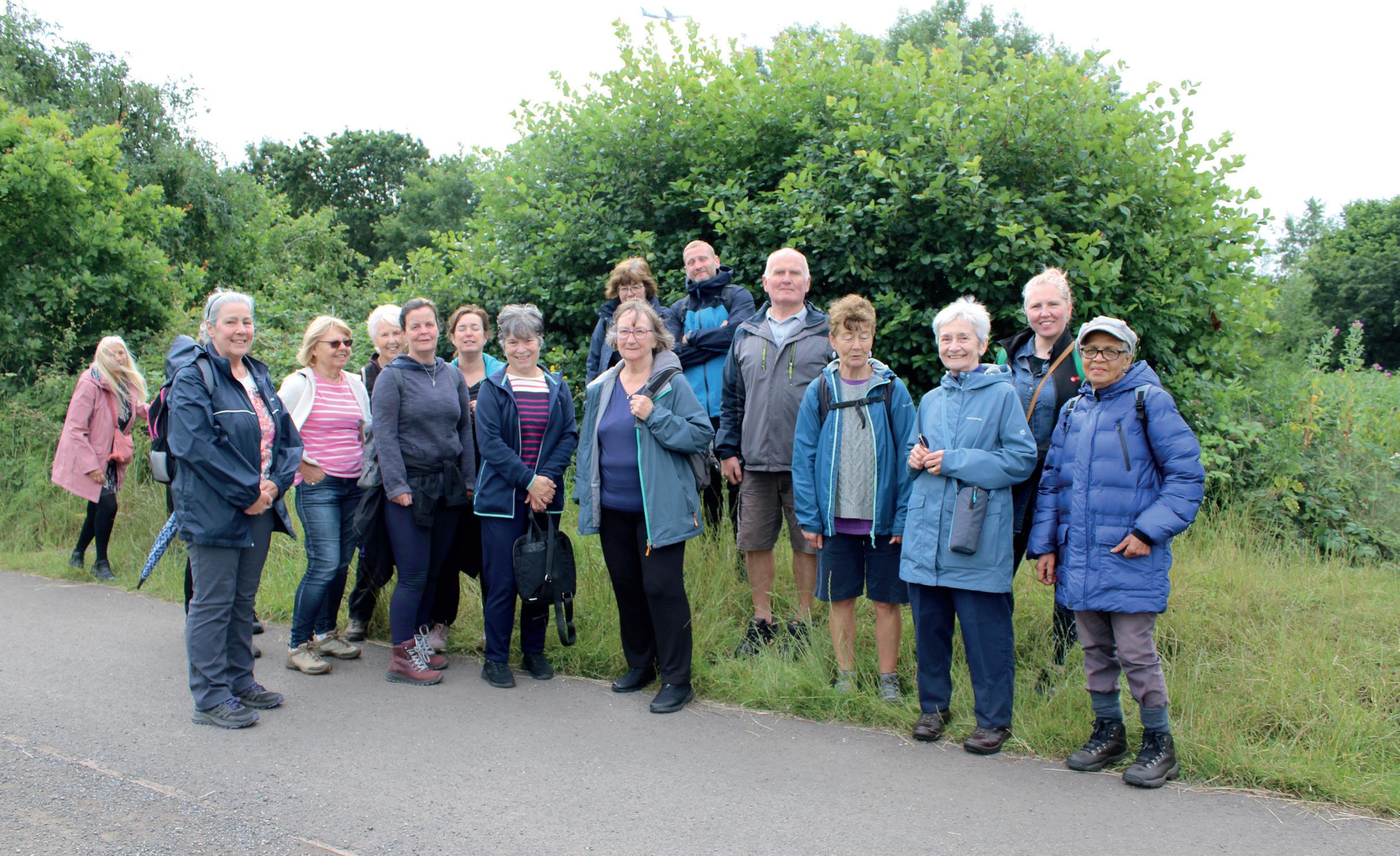
Recently we have worked with primary schools to create local walks and make them more interesting to encourage children to walk more locally and hopefully spur other members of their family to do the same.

Walking is extremely important to our community programme and we have created a pathway that includes walks for all ages and abilities
Jo Cherrett, CEO, Trafford Leisure:
At Trafford Leisure, sustainability is at the heart of everything we do. We are committed to making our facilities as eco-friendly as possible, with a clear pledge to cut carbon emissions by 5% year on year, working towards net zero by 2030.
Walking directly aligns with our sustainability goals, not just for the environment but for our communities across Trafford’s’ health too. Not only do we want more people walking to our centres, but we are actively encouraging participation in activities such as Walking Football.
We have already introduced schemes to support our staff in walking and cycling to work, reducing their reliance on cars and lowering our environmental impact. The next step? Encouraging more of our customers to walk to our centres, helping

to reduce pollution, ease local traffic congestion, and incorporate walking as part of their wellbeing.
On National Fitness Day, our staff and key stakeholders took this commitment further, walking between all our sites across the borough, engaging with the local community at schools, medical practices and community centres to promote active, sustainable lifestyles.
We are also working with local schools to encourage walking to Swim School lessons instead of relying on costly, polluting coach travel. Looking ahead, we’re exploring step-tracking rewards, walking challenges and partnerships with local businesses to further incentivise members to swap car journeys for walking.
The physical activity industry’s flagship summit took place in March, attracting a record-breaking crowd
More than 500 industry leaders, policymakers and innovators packed into London’s Queen Elizabeth II Centre for the annual Active Uprising event – organised by ukactive – on Thursday 6 March. The event featured keynote speeches, talks on current issues and lively panel discussions under the theme “No Growth without Health: Physical Activity’s Role in National Renewal”. Topics ranged from the sector’s current state and Gen Z to branding. The main theme, however, was the physical activity industry’s drive to become part of the healthcare sector and to utilise its potential to drive economic growth.
Ukactive’s outgoing chair, Mike Farrar, opened the event with a call for the government to better utilise the sector in order to achieve its own
economic growth ambitions. He urged there to be “substantial investment” into the sector as the NHS promises to move towards more prevention.
“As it reaches for quick wins, our government has a great opportunity to stand four square in support of the industry that sits behind a healthier nation – the physical activity industry,” Farrar said.
“I know that the Government can achieve growth through health – a nation that is more physically active will be more economically active. Any growth plans will need to focus on immediate growth as well as long-term strategy such as plans for airport runways.
“This sector can help deliver on ambitions for economic growth in this parliament. Our industry is growing, but we can, and wish, to do so much more. Putting more energy into backing sectors on the up, helping drive greater growth in our sector, will not only have significant economic benefits but also help


A more active nation is a more economically active one – investing in our sector
the NHS – this is a win-win. Our industry is growing, but that progress can be accelerated by taking off the handbrake that’s holding back our sector.
“Social prescribing and building physical activity into care pathways now provide the opportunity for the NHS to address the needs of tens of thousands of people suffering from chronic conditions and to help them avoid costly hospital admissions and loss of independent living.
This is where the forthcoming 10-year vision for health can really signal a shift in priorities and resources by establishing a new relationship between the NHS and the physical activity sector.
“If we do not address our population’s worsening health with true preventative measures, our economy will struggle immensely to be supercharged, the way we all hope.”
The former CEO of the NHS Confederation also announced the publication of a new blueprint, tipped as a vital step towards securing national health, growth and renewal. The document, shaped in collaboration with Active Partnerships, NHS England, Government officials, Sport England, NHS Horizons and ukactive members, aims to provide the optimal framework to enable the NHS to work with the physical activity sector to build a healthier nation.
The blueprint outlines principles and actions that will support the NHS and its partners to achieve the
10-year vision for health and care. It features eight key components which aim to help ensure the right governance, partnerships, pathways and messaging are being delivered to drive the uptake of physical activity provisions and support the health of local communities. One of the ambitions – in the long term – is for the delivery of the components within the blueprint to put an end to the current ‘postcode lottery’ when it comes to physical activity and health interventions, by enabling the delivery of industryled physical activity programmes and initiatives to be integrated fully into the health and care system.
Following his opening speech Farrar had a “fireside chat” with Paul Corrigan, a strategic advisor to the Secretary of State for Health and Social Care. Corrigan was appointed to the role in July 2024 and now works closely with Wes Streeting – the Secretary of State for Health – shaping the government’s 10-year health plan and provide independent scrutiny of its structure and implementation. Corrigan offered his insights on how the government has committed to three strategic shifts in its mission for health: from hospital to community, from analogue to digital, and from treatment to prevention. He also discussed the physical activity sector’s role in primary prevention.
“If we carry on doing what we’re doing in the same way that we’re doing it, the health service will collapse – in fact, it is collapsing now,” he said. “There are 18 million people with long-term conditions in this country.”
He also pointed out the difficulties in delivering on the government’s three ambitions – especially when it came to involving external operators and organisations. This was particularly evident in trying to make the business case – or evidence savings – through social prescribing, due to the financial model of the NHS.
“Keeping somebody from getting iller will transform the future of the fortunes of the health service – and we know social prescribing can keep someone from getting more ill. But how do you turn that into cash,” Corrigan said, describing how GPs operate as their own businesses and hospitals are their own separate entities. “Keeping someone out of hospital is great, but it doesn’t generate any income – the saving doesn’t come back to the cost.”
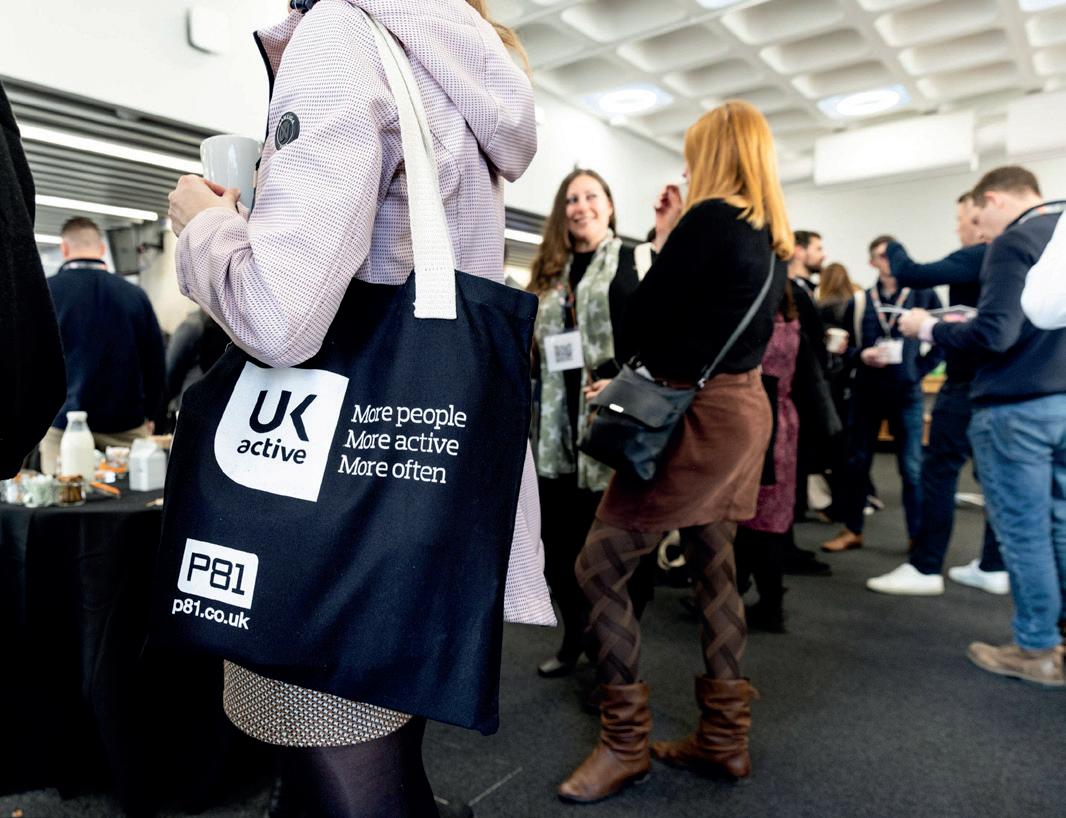

Corrigan also highlighted the NHS’s urgent need for partnerships, especially at a local level. He described it as an area where the physical activity industry could make real inroads.
“The NHS has been a bad partner and it cannot afford to continue to be a really bad partner –it needs relationships outside of itself in order to solve the problems of health,” he said.
“The answer to this is actually in every locality. How do you get someone who hasn’t thought about being active in their health to be active? That’s not going to happen in Whitehall, it’s going to happen in hearts and minds and how we as the NHS work in localities with you, the physical activity sector.”
The event also saw the introduction of the Make Britain Stronger campaign, which is aimed at raising awareness of Chief Medical Officer’s (CMO) strength guidelines. The CMO recommends all adults undertake some form of strength exercises two days each week to develop or maintain strength in the major muscle groups – from heavy gardening and carrying heavy shopping, to resistance exercise and gym.


The NHS can’t fix this alone – it needs local partners like the physical activity sector
Launched by Team GB weightlifter, Emily Campbell, the Make Britain Stronger campaign urges Brits to do two weight sessions a week for health and wellbeing benefits.
“There are many different forms of strength training which make it accessible to all,” she said.
“You can start without any kit at all, using your own bodyweight and then begin to increase the weights you lift in the safe, supportive environment of a gym or leisure centre in your neighbourhood.
“Strength training isn’t just about how much you can lift, it can be hugely beneficial to prevent injury, reduce the risk of pain and illness, and even help us to build confidence and mental resilience.
“My journey has taken me to the Olympic podium, but my greatest challenge is to leave a legacy that makes strength training part of everyday life for people from all communities.
“Strength training can really make every one of us feel incredible, and I’m committed to helping as many people as possible unlock their full potential.”
The day also included a panel discussion on how the physical activity sector can help address poor health and economic growth. Chaired by Marianne Boyle, Director of Membership Engagement at ukactive, the panel included Laura-Jane Rawlings MBE, CEO, Youth Employment UK;
Jordan Cummins, UK Competitiveness Director, CBI and Adam Memon, Director of Strategy, NHS England. Cummins had some practical advice for the sector when it comes to influencing government.
“It is important to follow the tactical with the strategic work”, Cummins said.
“Producing reports that evidence all the health, financial and economic benefits that the physical activity sector can provide is great. But that needs to be followed by strategic work - start identifying and putting forward frameworks for funding. There’s a lot that the physical activity sector can learn from how the environment - and sustainability - have become a priority across society.”
Other keynote sessions included Mark Shayler, Innovation and Environmental Advisor who discussed sustainability in business and how leaders can’t make money from a dead planet. Claire Rollins, Portfolio Leader at Banyan Software took the stage to explain how to build high-performing teams for sustainable business growth. Delegates also heard from Iain Pringle, Loyalty Consultant and Managing Partner at New World Loyalty, who shared his expertise on how rewards and incentives can shape our choices and transform behaviour.
The next ukactive flagship event – ukactive Awards 2025 – will take place on 30 October at The International Convention Centre in Birmingham.
